

THE LAST DUEL
"excessive medieval triangle".
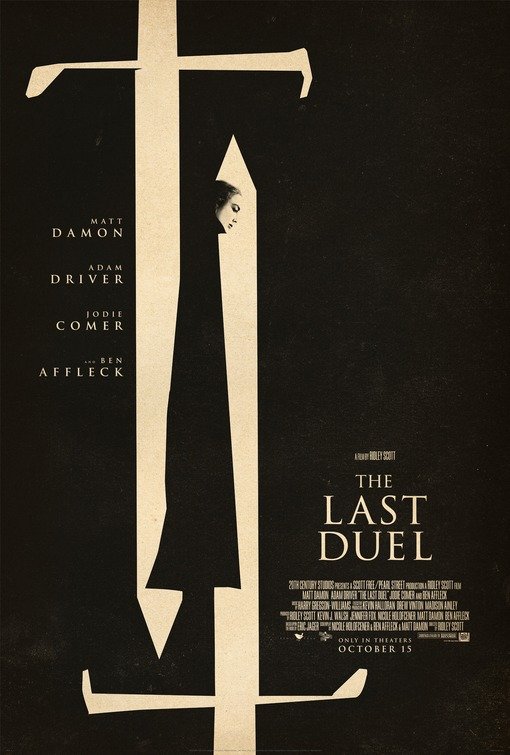
What You Need To Know:
Miscellaneous Immorality: Betrayal, lying, women are mistreated.
More Detail:
THE LAST DUEL is a medieval tale about a knight in France who challenges his rival to trial by combat when the knight’s wife publicly testifies that the rival, a squire serving a powerful nobleman, raped her while the knight was away on business. Based on a true story, THE LAST DUEL is a gripping, explosive movie, but it seems to lean toward a Romantic, politically correct, modern feminist worldview and contains extreme sexual content (including a disturbing rape scene), brief excessive nudity, some graphic violence, and three anachronistic “f” words.
Based on an acclaimed book by Eric Jager, the movie tells the story from three different perspectives in succession, over a period of 16 years. The first part is told from the knight’s perspective, a nobleman in Normandy named Jean. The second part is told from the rival’s perspective, a man named Jacques, who’s the squire of Count Pierre, an evil man the King has appointed overseer of Normandy and who holds Jean’s fate in his hands. The movie’s third part is told from the perspective of Jean’s wife, a beautiful woman named Marguerite.
Jean and Jacques start off as friends. In fact, the movie opens with a battle during the Hundred Years’ War between France and England where Jacques saves Jean’s life. Later, however, Jacques betrays Jean, on orders from Pierre, by taking a choice piece of land away from Jean that Marguerite’s father had promised Jean as part of her dowry. Pierre takes the land to pay off the father’s tax debt and gives the land to Jacques. So, Jean angrily takes Pierre and Jacques to court, but the King sides with the powerful Pierre and his right-hand man, Jacques.
Then, Pierre makes Jacques the captain of the local troops, a position that was held by Jean’s grandfather and his father, who has just died. Jean is the better soldier and considers the position his to have. He angrily confronts Pierre and Jacques publicly, but Pierre mocks Jean while the other noblemen just laugh.
When Jacques has a son, Marguerite encourages Jean to go to the celebration for the baby. At the celebration, he and Jacques appear to bury the hatchet, but Jacques becomes attracted to Marguerite. One day, while Jean is in Paris on business, Jean’s mother has taken all the servants away to go into town for the day, leaving Marguerite all alone. Jacques uses his personal attendant to trick Marguerite into opening the door. Jacques barges into the small castle and declares his love for Marguerite. She tells him to leave, but he refuses and chases her upstairs to the bedroom, where he grabs her, throws her onto the bed and rapes her. Jacques leaves right after that.
When Jean returns home a day or two later, Marguerite tells him what happened. Jean at first is furious with her, but Marguerite assures him that what she says is true.
So, they publicly accuse Jacques of raping her, but Count Pierre rules against them. However, Jean appeals to the King and the Paris Assembly. He requests that they let Jean challenge Jacques to trial by combat, because, according to the law at the time, rape is a crime against the husband, not the wife. If Jean is killed during the duel, however, Marguerite will be burned at the stake for bearing false witness against Jacques, a respected nobleman who serves a powerful nobleman and servant of the French king.
THE LAST DUEL tells a gripping, explosive story. Although the story’s told according to three separate perspectives, it’s clear who the biggest villains are and who the biggest hero is. Count Pierre is a despicable person who cheats on his wife by holding public and private orgies. He has thoroughly corrupted Jacques, who prides himself on his good looks and his book learning. Jacques falls in lust with Marguerite because she too is good looking and has some book learning. In contrast, Jean is a humble soldier, though he, too, has a feeling of entitlement. Jean is also rather hotheaded and often tactless. However, Marguerite trusts her husband when he tells her Jacques can’t be trusted.
THE LAST DUEL tells a complex story surprisingly well. The three-act structure may seem a little clunky because the two later parts go over some of the same material that’s previously shown. However, the script is well written, and the second and third sections build on the last ones. The script is actually co-written by Matt Damon, who plays Jean, and Ben Affleck, who plays Count Pierre, with Nicole Holofcener.
However, the movie seems to lean toward a strong Romantic, politically correct, feminist worldview. Though it certainly can be said that, for centuries, laws in Western Civilization discriminated against women, depriving them of rights that were given to men. This was especially heinous when it came to society sanctioning or allowing violence against women. It’s also true, however, that the struggle for civil rights has been an ongoing issue for everyone in Europe, Great Britain and the United States. That’s why documents like the Magna Carta, the Declaration of Independence, the Bill of Rights, and the 1964 Civil Rights Act were written. The issue with THE LAST DUEL is that none of the major male characters in the story come off unscathed. Thus, for example, though he sides with his wife, Marguerite, Jean is depicted as being more concerned about vindicating himself rather than his wife’s claims of rape or saving her from a painful death. Even the women that the movie depicts as flawed, such as Jean’s mother and Marguerite’s friend, who betrays her, are seen as victims of male society. Despite this, THE LAST DUEL has some scenes of positive Christian faith, a clear sense that Jacques and Count Pierre are evil, and a small scene featuring a strong, ethical Catholic priest.
A bigger issue with THE LAST DUEL, perhaps, is that the movie contains extreme sexual content, brief excessive sexual nudity and some graphic bloody violence. Therefore, THE LAST DUEL is not acceptable entertainment.
4000+ Faith Based Articles and Movie Reviews – Will you Support Us?
Our small team works tirelessly to provide resources to protect families from harmful media, reviewing 415 movies/shows and writing 3,626 uplifting articles this year. We believe that the gospel can transform entertainment. That’s why we emphasize positive and faith-filled articles and entertainment news, and release hundreds of Christian movie reviews to the public, for free. No paywalls, just trusted, biblically sound content to bless you and your family. Online, Movieguide is the closest thing to a biblical entertainment expert at your fingertips. As a reader-funded operation, we welcome any and all contributions – so if you can, please give something. It won’t take more than 52 seconds (we timed it for you). Thank you.
Movieguide® is a 501c3 and all donations are tax deductible.

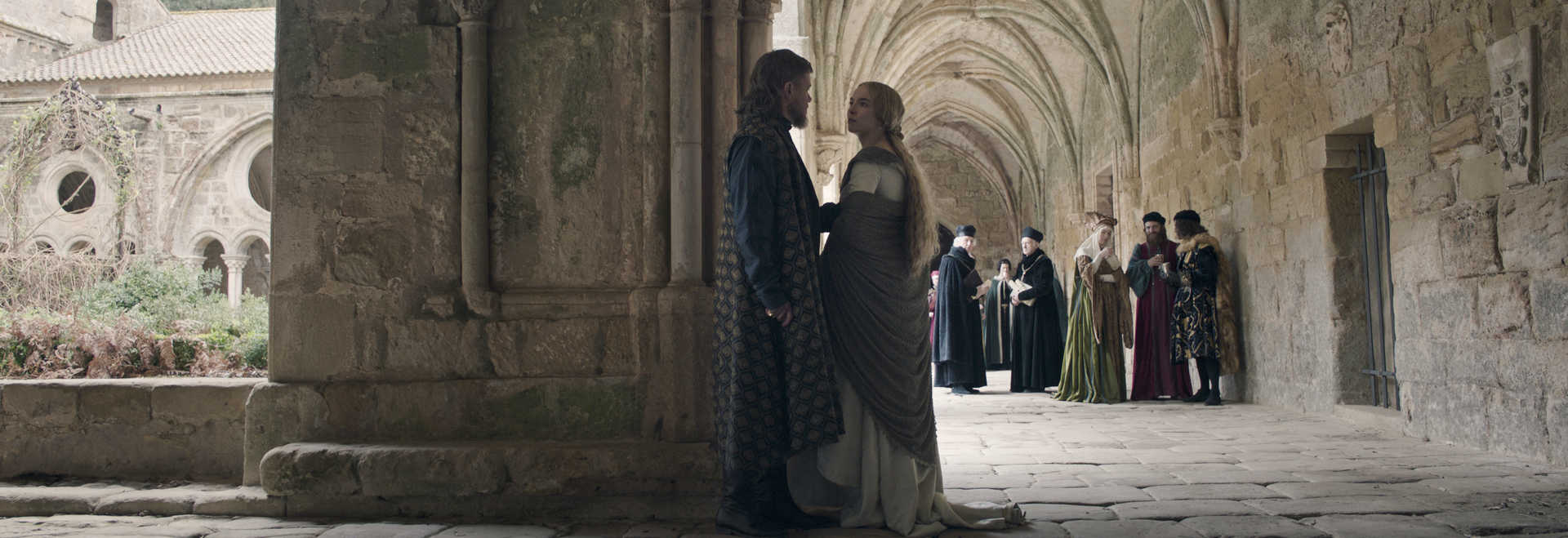
The Last Duel

Reviewed by: Shawna Ellis CONTRIBUTOR
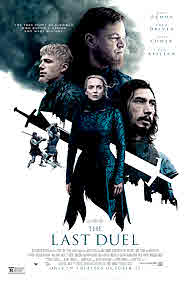
Political correctness messages in Hollywood movie entertainment
Modern feminist worldview
Is the FEMINIST MOVEMENT the right answer to the mistreatment that some women endure in this sinful world? Answer
Human depravity —What is it’s origin?
The debasement of women in worldly society
Debasement of the actresses in this film by the filmmakers through on-screen sexualization of their nudity, sex scenese, depiction of an orgy including Lesbianism, and depictions of a rape
Orgies / About sexual immorality and promiscuity
Sexual lust outside of marriage —Why does God strongly warn us about it?
Duels to the death
Famous and very rare trial by combat in Medieval France (1386)
According to Germanic law, whichever combatant was still alive at the end of the duel would be declared the winner, as a sign of God’s will. This was done to settle accusations in the absence of witnesses or a confession.
Film based on the book The Last Duel: A True Story of Trial by Combat in Medieval France , Eric Jager (2004)
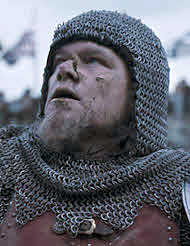
Sir Jean de Carrouges IV was a French knight who governed estates in Normandy as a vassal of Count Pierre d'Alençon. Carrouges served under Admiral Jean de Vienne in several campaigns against the Kingdom of England and the forces of the Ottoman Empire.
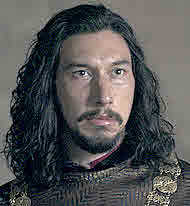
Sir Jacques Le Gris was a French squire and knight who was accused of rape by Marguerite de Carrouges, the wife of his neighbour and rival Sir Jean de Carrouges. He was a fierce, strong soldier, said to be rash and temperamental, and known as a notorious womaniser.
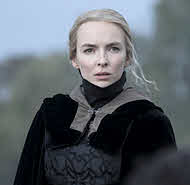
Rape victims’ stories
Shame and rape
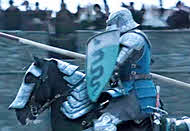
What is JUSTICE? What does the Bible say about it? Answer
Justice of God
What is THE FINAL JUDGMENT OF GOD? Answer
D oes the truth matter? This question is examined in Ridley Scott’s historical epic “The Last Duel,” which is based on the account of the last sanctioned judicial duel in France in 1386. Two men who were once friends and allies find themselves increasingly at odds, culminating finally in a trial-by-combat to settle the charge of rape . The accuser’s life hangs in the balance as she stands firmly by her claim, but must wait for the outcome of the duel between her husband and his friend-turned-enemy.
This story spans several years and is told from three varying perspectives, each presented as a chapter titled, “The Truth According To (that character).” But which of these is the actual truth? Each unfolds with differences according to that character’s self-perception and motivations.
As fallen and sinful beings , humans are often the worst judge of our own character. We are quick to skew our viewpoint, present ourselves in the most favorable light, and justify our actions. The characters in “The Last Duel” are no different. At what point does a quest for honor become pridefulness ? Can covetous lust be honestly mistaken for true love ? When one is wronged, how much should be risked for justice ?
What does the Bible say about PRIDE versus HUMILITY ?
What is covetousness ?
TRUE LOVE —What is true love and how do you know when you have found it? Answer
With its interesting historical basis and setting, an intriguing story-telling premise, serious subject matter and competent actors, I had high hopes that this could be an entertaining and thought-provoking movie. It did not fail on either account. The historical setting is truly fascinating, and the technical quality of the production is excellent. The cast of well-known actors are solid in their roles, with Jodie Comer especially convincing as Lady Marguerite de Carrouges. Adam Driver as Jacques Le Gris seems as if he has stepped from the very time in which the story takes place. The physical transformation of Matt Damon as Sir Jean de Carrouges helps make up for his slightly stiff acting, and Ben Affleck is believable (and unlikable) as the debaucherous Count Pierre d'Alencon. The lengthy run-time might seem too much for some viewers, but I believe it led to the ability to explore the characters and build the story.
Director Ridley Scott knows how to make an intense and immersive film, interweaving both drama and action while also dealing with the difficult subject matter of sexual violence and misogyny.
This entire story centers on rape and its consequences… certainly this is difficult territory for many viewers, especially those who have been violated in this way. I have never experienced being surrounded by such strong reactions in a theater as I did in my viewing. Although it was a small audience, I could hear and almost feel the discomfort of the other viewers as parts of the film unfolded. Audience members bristled and protested aloud during trial scenes in which it was suggested that a woman might deserve to be raped, or that she might enjoy it, or that she might be so overly dramatic that she simply dreamed it.
A female character tells Lady Marguerite that rape is something which just happens and needs to be forgotten, not something for which you should seek justice.
Scenes like this had me clenching my teeth in frustration with the characters and the unbiblical thinking of the time period. Sadly, in many places these are still prevailing attitudes toward women who dare to come forward for justice.
I also felt myself growing angry as decidedly unbiblical views of the worth of women were presented almost as “Christian values.” I know that in that place and time, women were viewed as property and often as having no more value than as a means of continuing a family line. But this view of women is entirely unbiblical and not consistent with the teachings of Christ.
Jesus placed a value and honor upon women which they never before had in ancient times. It is corrupt and utterly false “religious traditions” which have skewed this.
Likewise, a false (but perhaps historically accurate) view of God and His means of justice is presented in this film. The belief and teaching at the time was that if one was right and truthful, he could not fail in a duel, and in this way God’s judgment would be rendered.
This is a low view of our sovereign and all-knowing God, who renders both justice and mercy in His timing and in His way without the need of humans fighting to the death to “prove themselves” to be right.
Learn more about Biblical problems with Roman Catholicism
Sexual Abuse of Children in the Roman Catholic Church
QUIZ—Catholicism and Protestantism. Do you think like a Protestant or a Catholic?
I know it was the filmmaker’s intent to stir up some of these feelings so they could be examined. These and other topics presented in “The Last Duel” should provide material for careful thought and discussion, as some of these issues still exist today. In this way, the movie succeeded. I have not stopped thinking of some of the content presented in this film. If others are also thinking on these things after viewing it, it might be counted worthwhile. However, intertwined in the compelling story is content of grave moral concern in almost every area.
Content of Concern
VIOLENCE: This film has multiple gory and bloody battle scenes. These are graphic and unflinchingly realistic. The violence is extreme, with death and grisly injuries. Innocent people are slaughtered to bait an army to charge. Close shots of bloodied faces during battles fill the screen. A corpse is stripped, dragged through the streets and hung upside down.
As well as the battle and duel scenes, we also see a hunt in which a stag’s throat is cut and blood is smeared on two young boys as a rite of passage. A man beats a horse with a shovel. Other horses are gruesomely killed in combat.
SEX/NUDITY: Sexual violence is the area of deepest concern. The plot of centers around an accusation of rape. Twice we see this take place, from differing perspectives. Although the characters are fully clothed, these scenes are depicted realistically and are very difficult to watch. I could feel the tension and discomfort in the theater as other moviegoers reacted to this.
In a scene lasting a few minutes, several completely nude women fondle each other on a bed in the background as other characters converse. A naked woman walks past. One male character invites another to participate, and they both join in.
In a different scene, after bawdy talk and drinking in the Count’s hall, two men participate in an orgy with multiple women. A character chases and grabs a woman at this debaucherous party, then engages in sex with her as others watch and some join in.
There are multiple scenes of intercourse between a husband and wife. Although no graphic nudity is shown at these times, there is movement and sound with bare limbs and backs.
Several conversations concern sexual pleasure, including the repugnant suggestion that a woman might enjoy being raped. There are scenes with suggestive talk and various references to a character’s immoral escapades.
There are several dresses exposing considerable cleavage and men are shown bare-chested, in addition to the nude scenes mentioned previously. A corpse is stripped bare.
An sexually aroused stallion breaks into a pen and violently attempts to mount a mare.
LANGUAGE: Count Pierre is foul-mouthed and uses the F-word at least 5 times, as well as other vulgarities including “c*nt.” God’s name is used in vain a several times. The term “ damned ” is used both lightly and in the biblical context of damnation.
OTHER: Certain characters drink often and are shown drunk . Clergy and others have a very skewed understanding of God and justice. A man says that he is willing to be damned to eternal torment if he has lied. It is implied that rape accusations are common in the church and are regularly covered up. The attitude toward women at the time is completely unbiblical, although it is presented under a guise of true Christianity. The very premise of trial-by-combat as a means of proving God’s will in a matter is false and unfounded.
As much as I wanted to enjoy this film, I cannot recommend it for Christian viewing due to its content. The use of three accounts from different perspectives would normally be something I would want to watch again to find missed details, but I can’t envision myself sitting before this movie a second time. While artfully executed with a compelling story, it has a great deal of problematic content which could certainly be a stumbling block for viewers.
- Violence: Extreme
- Nudity: Very Heavy
- Sex: Very Heavy
- Vulgar/Crude language: Very Heavy
- Drugs/Alcohol: Moderately Heavy
- Profane language: Moderate
- Occult: None
Learn about DISCERNMENT —wisdom in making personal entertainment decisions
What is biblical WISDOM ?

See list of Relevant Issues—questions-and-answers .
PLEASE share your observations and insights to be posted here.
- Skip to main content
- Skip to secondary menu
- Skip to primary sidebar
- Skip to footer

Catholic Review
Inspiring the Archdiocese of Baltimore
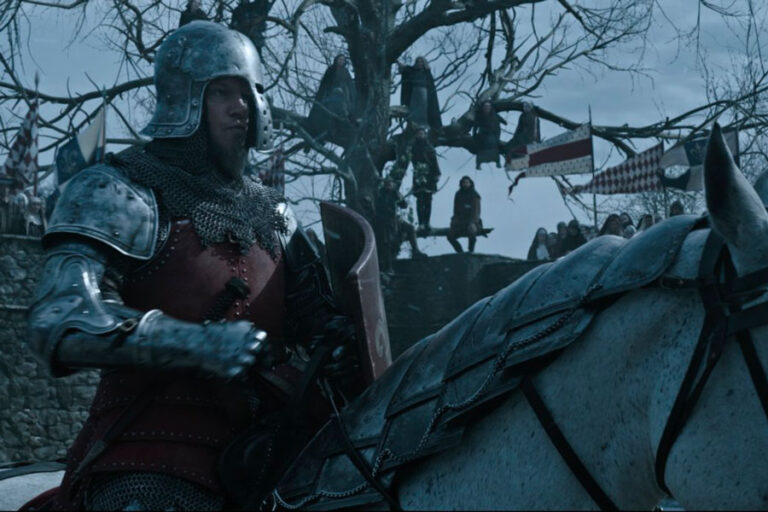
Movie Review: ‘The Last Duel’

NEW YORK (CNS) — There are many knights but not much shining armor in the grim historical drama “The Last Duel” (20th Century).
With a real-life conflict in 14th-century France serving as a portal through which director Ridley Scott, along with screenwriters Matt Damon, Ben Affleck and Nicole Holofcener, survey varied aspects of medieval European life, the emphasis is on the brutal and the bawdy.
In adapting Eric Jager’s 2004 book, the filmmakers recount the friendship-turned-bitter-rivalry of two warriors: peevish, irritating Jean de Carrouges (Damon) and suave sophisticate Jacques Le Gris (Adam Driver).
De Carrouges scores a personal victory when he marries fetching noblewoman Marguerite de Thibouville (Jodie Comer). But he also suffers a number of financial and social setbacks that he ascribes to the machinations of Le Gris.
Unlike de Carrouges, Le Gris has successfully ingratiated himself with the feudal lord they both serve, Count Pierre d’Alençon (Affleck). He’s done so, in part, by sharing in d’Alençon’s vigorously lascivious lifestyle, a fact which Scott depicts both explicitly and with misplaced lightheartedness.
The feud between de Carrouges and Le Gris culminates violently after Marguerite publicly accuses Le Gris of raping her. With d’Alençon only too ready to acquit his boon companion, de Carrouges insists on his right to settle the case via trial by combat, an already outmoded form of justice based on the idea that God would not allow a perjurer to prevail in such a contest, so the victor must have been telling the truth.
Before the ferocious sequence in which this climatic confrontation is portrayed, the movie successively tells the story of the events leading up to it from each of the three principals’ perspectives. The decision needlessly to repeat the scene of assault, however, represents a poor aesthetic choice and contributes to making this a challenging production fit for only the hardiest grown-ups.
The script frequently highlights aspects of the period — pathetically primitive medicine, off-kilter reasoning and outright superstition — at which the audience is invited to laugh. Though not entirely positive, the treatment of the church, by contrast, is at least not derisive.
The film contains much harsh, gory violence, gruesome images, strong sexual content, including rape, frivolously treated aberrant behavior, semi-graphic marital lovemaking and full nudity, a few mild oaths, about a half-dozen rough terms and at least one crass expression. The Catholic News Service classification is L — limited adult audience, films whose problematic content many adults would find troubling. The Motion Picture Association rating is R — restricted. Under 17 requires accompanying parent or adult guardian.
READ MORE MOVIE & T.V. REVIEWS
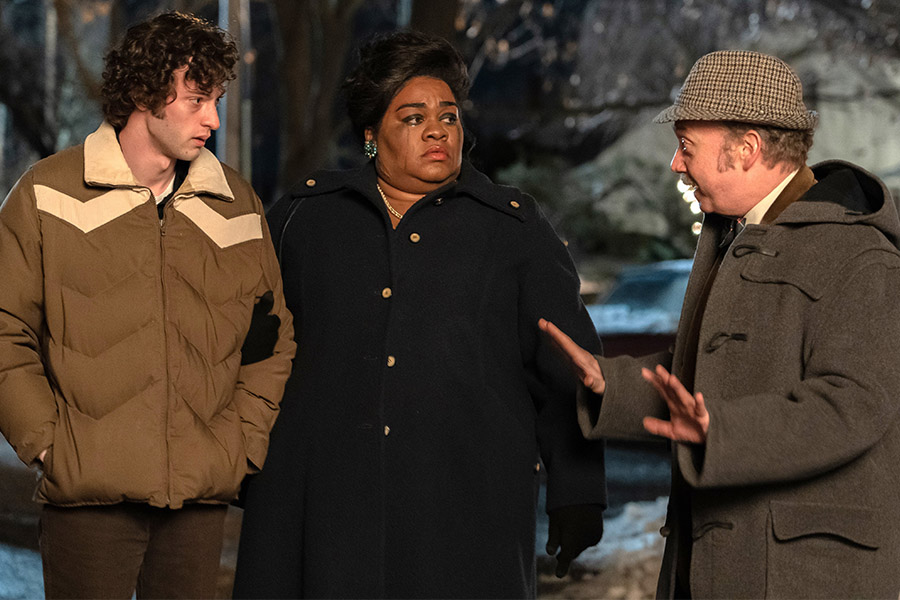
Home viewing roundup: What’s available to stream and what’s on horizon
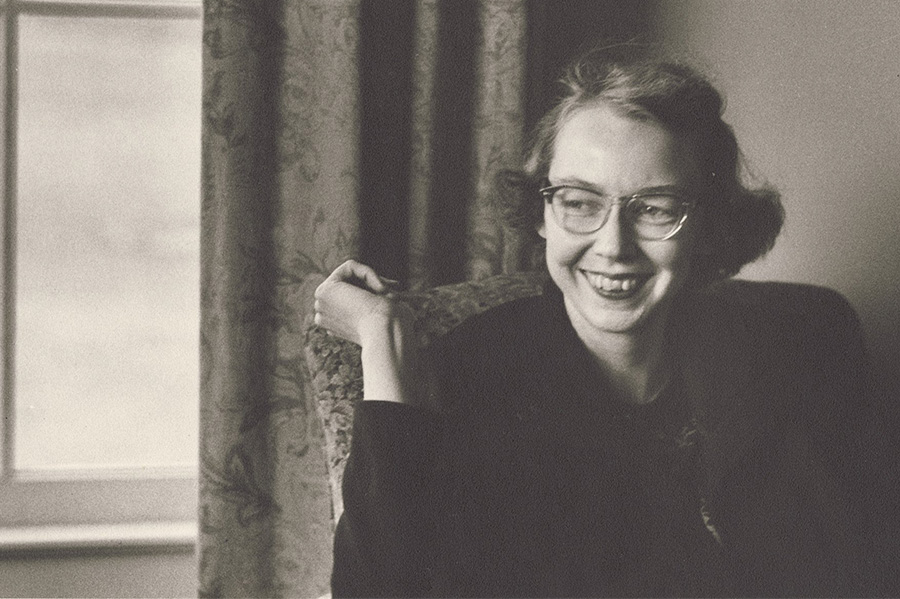
‘Wildcat’ a reminder of Flannery O’Connor’s enduring attraction
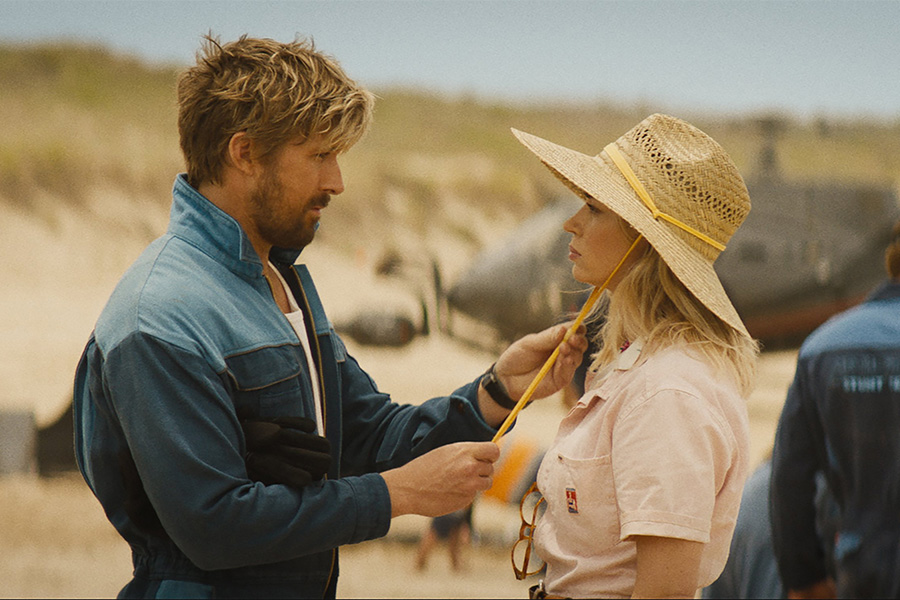
Movie Review: ‘The Fall Guy’
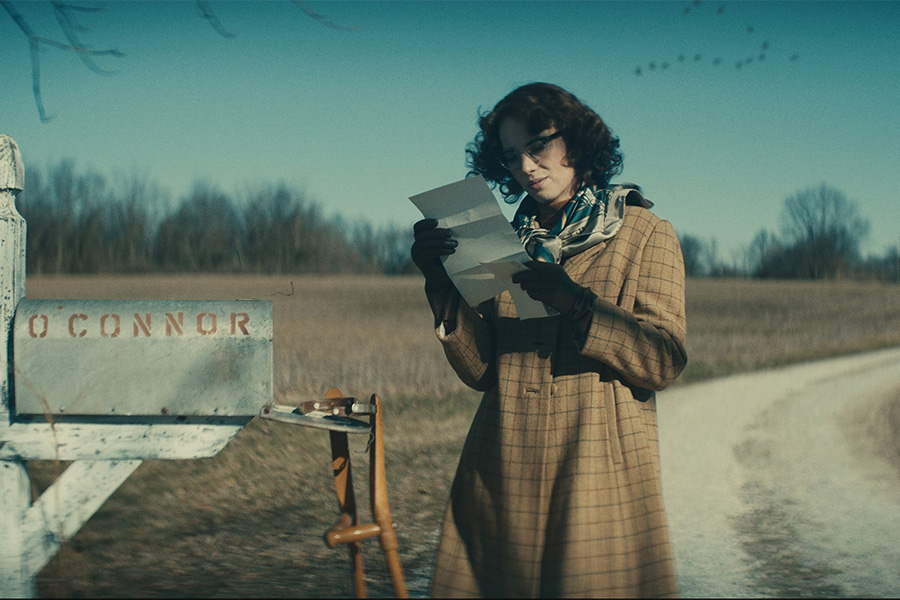
Movie Review: ‘Wildcat’

Movie Review: ‘We Grown Now’
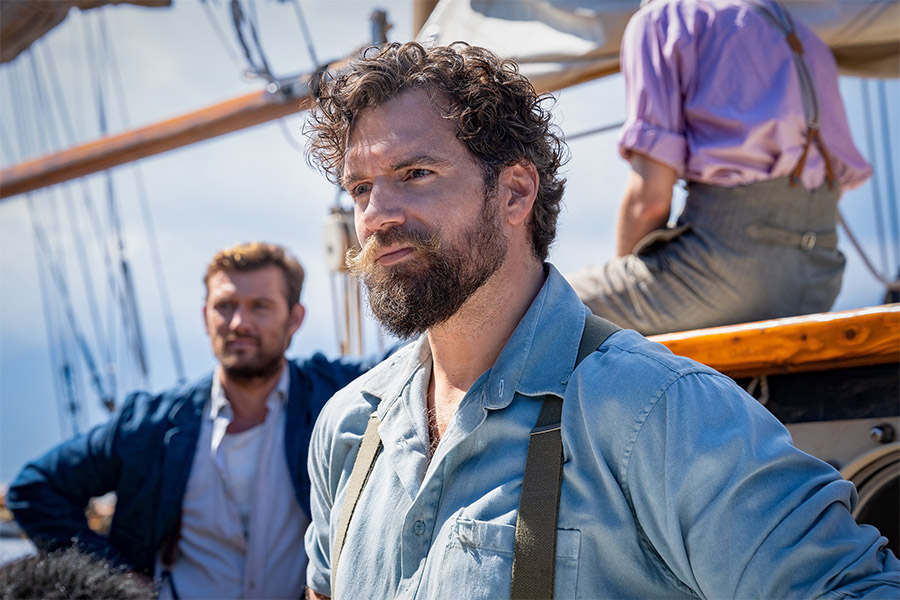
Movie Review: ‘The Ministry of Ungentlemanly Warfare’
Real Life. Real Faith.
Catholic Review Media communicates the Gospel and its impact on people’s lives in the Archdiocese of Baltimore and beyond.
Our Mission
Catholic Review Media provides intergenerational communications that inform, teach, inspire and engage Catholics and all of good will in the mission of Christ through diverse forms of media.
Catholic Review 320 Cathedral Street Baltimore, MD 21201 443-524-3150 [email protected]
Social Media
- Nobel winners reflect on peace, human dignity at Vatican conference
- Help students see crises as opportunities for growth, pope says
- Xaverian Brother James P. Eckert, who taught at Mount St. Joseph, dies at 79
- World’s ills rooted in too much greed, not too many babies, pope says
- Church needs theologians who grapple with modern world, pope says
- Texas attorney general revives attempt to shut down Catholic nonprofit serving migrants
- U.S. watchdog for international religious freedom seeks additional sanctions on Iran
- Jubilee countdown: Preparations for 2025 Holy Year move into high gear
- University of Mary’s community for student moms celebrates its first graduate

Catholic Media Assocation
Maryland-Delaware-DC Press Association
The Associated Church Press
Movie Reviews
Tv/streaming, collections, great movies, chaz's journal, contributors, the last duel.

Now streaming on:
Over the decades, Ridley Scott has made several period films that are widely regarded as classics. More than several, if you expand your horizons to include films set in the future in the category of “period.” But with Scott period is not a guarantee of pleasure. Not that any of his pictures have lacked for quality if you associate quality with production value and snazzy shooting and cutting. But sometimes Scott fails to put a sense of life on the screen. While “ Gladiator ” and “ Kingdom of Heaven ” throbbed with purposeful vitality, pictures such as “Robin Hood” and “1492: Conquest of Paradise” seemed to lack much of a reason for being.
Scott’s “The Last Duel” may not be perfect but it never exhibits such inertia. This medieval intrigue comes courtesy of an unusual combination of talents: its screenplay, which is indeed based on true Medieval Events, is by Matt Damon and Ben Affleck (collaborating as writers, or at least as credited writers, for the first time since “ Good Will Hunting ”) and by Nicole Holofcener , best known for contemporary dramatic comedies with satiric bite and female-centered perspectives. Set in 14 th century France, it casts Damon and Affleck in central roles in a story about egocentric men playing at power and subjugating women, all the while using cardboard conceptions of concepts such as duty, loyalty, and fealty to God as the pretexts for their petty, criminal actions.
After a prologue presenting the beginning of the title duel—a match to the death between squires and one-time friends Sir Jean de Carrouges and Jacques Le Gris (Damon and an especially tense-necked Adam Driver , respectively)—the movie takes a “ Rashomon ”-inspired structure. The first “Truth According To Chapter” belongs to Damon’s de Carrouges. In this episode Jean kicks things off by saving Jacques’ life at the Battle of Limoges. Then he goes on to do other noble things, despite the disdain in which he is held by his liege, Pierre d’Alençon (Affleck). He marries the beautiful daughter of a one-time traitor, goes off to battle without hesitation, that sort of thing. All the while watching Le Gris rise higher and higher in the court and swallowing his pride when Le Gris is awarded land and titles he believed rightfully his. They fall in and out with each other. But they fall definitively out when Marguerite, Jean’s wife ( Jodie Comer ), accuses Le Gris of rape.
And—I don’t think this actually constitutes a spoiler, but if you’re wary, maybe skip this paragraph—rape it most certainly is. The next chapter tells the truth according to Le Gris. In this account, Jean is a petulant, inappropriate whiner whose butt Le Gris is always covering; d’Alençon has little if any use for the squire. As for Marguerite, Le Gris “sincerely” loves her. This ruthless pragmatist is a man, and is thus, by his way of thinking, entitled to take her. When the devoutly Catholic rapist confesses to a priest, he admits not to rape but to “adultery.” Advising him on his upcoming legal troubles, another cleric tells him “Rape is not a crime against a woman. It is a property matter.”
The third chapter is billed as “The Truth According To Marguerite de Carrouges” and to drive a point home, the words “the truth” stay up longer on this title card than they do on the preceding. This is a lacerating sequence in which both Jean and Jacques are shown as chest-thumping brutes and opportunists. Jean believes he was tender to his bride; Marguerite’s section tells mostly of how he bickered with Marguerite’s father over her dowry. And so on. This telling repeats the rape scene, which is arguably necessary but uncomfortable—and of course that may be the point. What fascinates in these different perspectives are the small details—how one character remembers a brief kiss differently than another, how a pair of shoes removed daintily at the bottom of a stair in one telling becomes shoes falling off feet as the stairs are mounted in a panicked rush.
And it all leads up to the title duel which, even by the high standards set by Scott’s “Gladiator,” is what you’d call a humdinger.
There are plenty of nits one can pick about this picture. While Driver and Comer almost automatically fit into the movie’s world of lances and horses and castles (and various views of Notre Dame Cathedral while under construction), Damon and Affleck are harder period sells. Especially with Affleck going blond here. No performer commits any outright fouls—the screenplay has them all speaking an only slightly treated form of American colloquial English, so there are no Shakespearean pitfalls present. But it’s certain that connoisseurs of the “Sad Affleck” meme are gonna go to town once they can start getting screen shots from this movie.
Then of course there’s the “how feminist is it, anyway?” question. I could say “more than a little,” given that its observations pertaining to still-current issues land with some force and are arguably fortified in the context of medieval hypocrisy and barbarity. Nevertheless, while “The Last Duel” may be a partial model of mindfulness, it still obeys the requirements of the period action drama. This should surprise no one—this is a major studio multi-million dollar production overseen by a director whose work has only rarely skirted feisty indie territory. And let’s not forget that when he has, it’s been with just as mixed a bag of results as he’s had throughout his career—I’m thinking “ Thelma and Louise ” on the credit side and “A Good Year” on the debit.
When it’s delivering what the best of Scott and company's work can do—and the imagery, much of it grounded in a palette that could be a tribute to its anti-hero, whose last name translates as “the gray,” is frequently startling—the commentary pursued by the movie’s scenario isn’t entirely subsumed, but it’s not paramount, either.
Exclusively in theaters Friday, October 15th.

Glenn Kenny
Glenn Kenny was the chief film critic of Premiere magazine for almost half of its existence. He has written for a host of other publications and resides in Brooklyn. Read his answers to our Movie Love Questionnaire here .
Now playing

Nowhere Special

Food, Inc. 2

Brian Tallerico

Matt Zoller Seitz

Dusk for a Hitman
Robert daniels.

Boy Kills World
Simon abrams, film credits.

The Last Duel (2021)
Rated R for strong violence including sexual assault, sexual content, some graphic nudity, and language.
153 minutes
Jodie Comer as Marguerite de Carrouges
Matt Damon as Jean de Carrouges
Adam Driver as Jacques Le Gris
Ben Affleck as Count Pierre d'Alençon
Marton Csokas as Crespin
Harriet Walter as Nicole de Bouchard
Clare Dunne as Celia
- Ridley Scott
- Ben Affleck
- Nicole Holofcener
Cinematographer
- Dariusz Wolski
- Claire Simpson
- Harry Gregson-Williams
Latest blog posts

Saving Film History One Frame at a Time: A Preview of Restored & Rediscovered Series at the Jacob Burns Film Center

The Beatles Were Never More Human Than in ‘Let It Be’

Dear Tim Cook: Be a Decent Human Being and Delete this Revolting Apple Ad

The Problem and the Solution: Why Palpatine from Star Wars is One of the Great Movie Villains
Common Sense Media
Movie & TV reviews for parents
- For Parents
- For Educators
- Our Work and Impact
Or browse by category:
- Get the app
- Movie Reviews
- Best Movie Lists
- Best Movies on Netflix, Disney+, and More
Common Sense Selections for Movies

50 Modern Movies All Kids Should Watch Before They're 12

- Best TV Lists
- Best TV Shows on Netflix, Disney+, and More
- Common Sense Selections for TV
- Video Reviews of TV Shows

Best Kids' Shows on Disney+

Best Kids' TV Shows on Netflix
- Book Reviews
- Best Book Lists
- Common Sense Selections for Books

8 Tips for Getting Kids Hooked on Books

50 Books All Kids Should Read Before They're 12
- Game Reviews
- Best Game Lists
Common Sense Selections for Games
- Video Reviews of Games

Nintendo Switch Games for Family Fun

- Podcast Reviews
- Best Podcast Lists
Common Sense Selections for Podcasts

Parents' Guide to Podcasts

- App Reviews
- Best App Lists

Social Networking for Teens

Gun-Free Action Game Apps

Reviews for AI Apps and Tools
- YouTube Channel Reviews
- YouTube Kids Channels by Topic

Parents' Ultimate Guide to YouTube Kids

YouTube Kids Channels for Gamers
- Preschoolers (2-4)
- Little Kids (5-7)
- Big Kids (8-9)
- Pre-Teens (10-12)
- Teens (13+)
- Screen Time
- Social Media
- Online Safety
- Identity and Community

Explaining the News to Our Kids
- Family Tech Planners
- Digital Skills
- All Articles
- Latino Culture
- Black Voices
- Asian Stories
- Native Narratives
- LGBTQ+ Pride
- Best of Diverse Representation List

Celebrating Black History Month

Movies and TV Shows with Arab Leads

Celebrate Hip-Hop's 50th Anniversary
The last duel, common sense media reviewers.

Brutal violence in clunky tale of toxic masculinity.

A Lot or a Little?
What you will—and won't—find in this movie.
Though it doesn't offer clear answers and leaves o
Marguerite is the movie's real and only hero. Ther
As is typical for historical movie set in medieval
A brutal rape sequence is shown twice. Overall, mo
Brief but explicit sex scenes. Men thrust on top o
Several uses of "f--king" or "f--k." A use of "c--
Heavy drinking during parties (wine). Secondary ch
Parents need to know that The Last Duel is a blood-soaked medieval sword fight drama directed by Ridley Scott, starring Jodie Comer, Matt Damon, Adam Driver, and Ben Affleck. It's ambitious in its attempts to address toxic masculinity and female power, but its length and structure make it frequently clunky…
Positive Messages
Though it doesn't offer clear answers and leaves off in a pessimistic way, movie clearly demonstrates horror of what women can go through when they stand up against sexual predators, as well as immense strength it takes to do that. Against backdrop of barbaric laws (i.e., rape is not a crime against a woman, it's a crime against her husband, whose "property" she is), these themes stand out in sharp relief.
Positive Role Models
Marguerite is the movie's real and only hero. There's pressure for her to keep quiet and simply endure what happened to her, but she risks absolutely everything, even her unborn child, to try to do the right thing -- to stand up and perhaps encourage others to say that this is not OK. Male characters are depicted as entitled, unable or unwilling to listen to women's point of view.
Diverse Representations
As is typical for historical movie set in medieval Europe, characters are all White. But unlike many movies of this type, a strong woman emerges who isn't just there to serve and support her husband. She's still locked in by limitations, laws, and beliefs of the time, but she stands out as powerful and brave.
Did we miss something on diversity? Suggest an update.
Violence & Scariness
A brutal rape sequence is shown twice. Overall, movie is extremely gory and bloody: brutal sword fights with slicing and stabbing, a bloody joust battle, terrible wounds, and blood sprays, drips, and puddles. Characters die, and death is discussed. Bruises on woman's shoulder. A bloody corpse is stripped, dragged away, hung. Flaming arrows; a character is hit in head with one and catches fire. Man grabs woman in threatening way. Punching. Deer's neck sliced open. Horses brutally killed during duel. Dialogue describing violent acts (lashing, burning, etc.).
Did you know you can flag iffy content? Adjust limits for Violence & Scariness in your kid's entertainment guide.
Sex, Romance & Nudity
Brief but explicit sex scenes. Men thrust on top of women, climaxing rapturously. A man is shown with five partners, all naked in bed. Some appear to be pleasuring one of the group; she moans passionately. Full-frontal female nudity. Brief full-frontal male nudity (a corpse). Sex talk, sexual innuendo. A stallion mounts a mare. Character in low-cut, revealing dress.
Did you know you can flag iffy content? Adjust limits for Sex, Romance & Nudity in your kid's entertainment guide.
Several uses of "f--king" or "f--k." A use of "c--t." A use of "damned."
Did you know you can flag iffy content? Adjust limits for Language in your kid's entertainment guide.
Drinking, Drugs & Smoking
Heavy drinking during parties (wine). Secondary character drinks almost constantly (some drunkenness, no consequences).
Did you know you can flag iffy content? Adjust limits for Drinking, Drugs & Smoking in your kid's entertainment guide.
Parents Need to Know
Parents need to know that The Last Duel is a blood-soaked medieval sword fight drama directed by Ridley Scott , starring Jodie Comer , Matt Damon , Adam Driver , and Ben Affleck . It's ambitious in its attempts to address toxic masculinity and female power, but its length and structure make it frequently clunky and repetitive. Expect extremely gory battle violence, with slicing, stabbing, and buckets of blood. A brutal rape scene is shown twice. A bloody male corpse is stripped, dragged away, and hung; horses die horribly; and more. There are also brief but explicit sex scenes, including a character shown with five partners who are naked in bed. Men are shown thrusting on top of women, and there's full-frontal nudity. Language includes variations on "f--k," a use of "c--t," and a use of "damned." Characters guzzle wine during a party scene, and a secondary character drinks frequently throughout. To stay in the loop on more movies like this, you can sign up for weekly Family Movie Night emails .
Where to Watch
Videos and photos.

Community Reviews
- Parents say (5)
- Kids say (6)
Based on 5 parent reviews
Great film that probes larger philosophical questions
Extraordinary period piece. damon, comer, driver & affleck are all brilliant in their performances., what's the story.
In THE LAST DUEL, it's the year 1386, and Sir Jean de Carrouges ( Matt Damon ) is about to fight a duel with Jacques Le Gris ( Adam Driver ). In flashback, viewers see what led up to the duel from three points of view. First, we see through the eyes of de Carrouges, who marries Marguerite ( Jodie Comer ) but is dismayed to learn that a valuable piece of land that was meant to be her dowry has been given to Le Gris. The two men attempt to bury the hatchet at a party, but Le Gris becomes smitten with Marguerite. She later tells her husband that Le Gris raped her. In Le Gris' chapter, he becomes the favorite squire of Count Pierre d'Alençon ( Ben Affleck ) and commits his vile act. Marguerite's story reveals more about the barbarism in the beliefs and laws of the time. Subsequently, the ultimate price of the duel may be dearer than anyone could have anticipated.
Is It Any Good?
This bloody medieval sword fight movie's three-chapter structure is both an asset and a hindrance. At times, it seems to deepen the story, but it also feels repetitive and moves in graceless, blocky chunks. Directed by Ridley Scott , The Last Duel resembles some of his other ancient-times battle movies in that it's serious and clunky, with action that's more forceful and clumsy than exciting. The first chapter, which lays the groundwork for the story, is nearly unendurable, providing curt details and jumping ahead years at a time, without building the characters. The second chapter brings fresh hope, not only because it starts to smooth out the story, layering in emotions and nuance, but also because of Affleck's delightful performance as the rascally count. His character is the only one having fun, sidling about his palace full of drinks and women and savoring his loquacious, soft-leather dialogue. (It's also fun to watch him pick on his buddy Damon in their few scenes together.)
The third chapter is troublesome, since it tends to repeat whole scenes from earlier in the movie with only the slightest variations, as if alternate takes were accidentally added in. Only one sequence, in which de Carrouges and Le Gris shake hands at the party -- seen three different ways -- holds any deeper meaning. If only the movie had been tighter than its 152 minutes allows (like the 88-minute Rashomon ), it might have made its point more concisely. But the final third also develops the movie's true themes on toxic masculinity and the power of women. With a screenplay by Affleck, Damon, and filmmaker Nicole Holofcener , it's easy to guess that Holofcener added these touches, and they hit hard. But we leave The Last Duel with the discouraging feeling that all the male characters are horrible and unredeemable and that women have a long, long way to go. (Guess what? They still do.)
Talk to Your Kids About ...
Families can talk about The Last Duel 's violence . How did it make you feel? Was it exciting? Shocking? What did the movie show or not show to achieve this effect? Why is that important?
What is "toxic masculinity"? How does the movie depict it? Are any solutions offered? How is the movie's message applicable to modern times?
How is sex depicted here? Is it shown as a loving act? What values are imparted?
How is drinking depicted? Is it glamorized? Are there consequences? Why does that matter?
Were you shocked by the way women are viewed in this story? How have things changed over the centuries?
Movie Details
- In theaters : October 15, 2021
- On DVD or streaming : November 30, 2021
- Cast : Jodie Comer , Adam Driver , Matt Damon , Ben Affleck
- Director : Ridley Scott
- Inclusion Information : Female actors
- Studio : 20th Century Fox
- Genre : Drama
- Topics : Book Characters , History
- Run time : 152 minutes
- MPAA rating : R
- MPAA explanation : strong violence including sexual assault, sexual content, some graphic nudity, and language
- Last updated : February 6, 2024
Did we miss something on diversity?
Research shows a connection between kids' healthy self-esteem and positive portrayals in media. That's why we've added a new "Diverse Representations" section to our reviews that will be rolling out on an ongoing basis. You can help us help kids by suggesting a diversity update.
Suggest an Update
Our editors recommend.

Kingdom of Heaven

King Arthur


King Arthur: Legend of the Sword

A Knight's Tale

Best Epic Movies
Best action movies for kids, related topics.
- Book Characters
Want suggestions based on your streaming services? Get personalized recommendations
Common Sense Media's unbiased ratings are created by expert reviewers and aren't influenced by the product's creators or by any of our funders, affiliates, or partners.
Notice: All forms on this website are temporarily down for maintenance. You will not be able to complete a form to request information or a resource. We apologize for any inconvenience and will reactivate the forms as soon as possible.
- DVD & Streaming
The Last Duel
Content caution.
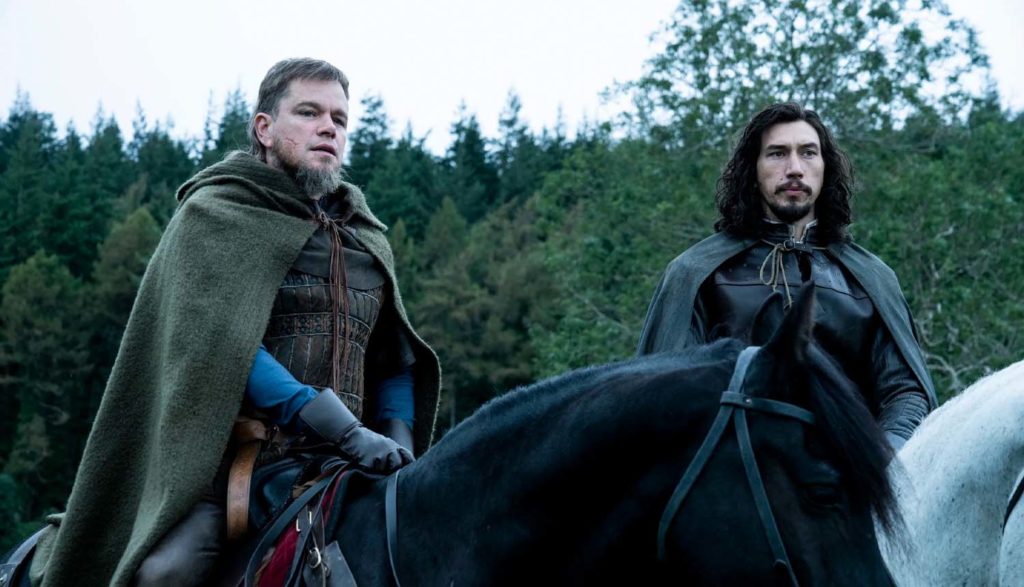
In Theaters
- October 15, 2021
- Matt Damon as Jean de Carrouges; Adam Driver as Jacques Le Gris; Jodie Comer as Marguerite de Carrouges; Ben Affleck as Count Pierre d'Alençon; Harriet Walter as Nicole de Buchard
Home Release Date
- November 30, 2021
- Ridley Scott
Distributor
- 20th Century Studios
Movie Review
It was an unspeakable act. If it happened.
There’s some question about that, it seems. Marguerite de Carrouges—wife of one of 14 th -century France’s most nettlesome knights, Jean de Carrouges—says that she was raped. Jacques Le Gris barged in when she was alone in her castle, sexually assaulted her and threatened her to keep quiet: After all, Marguerite’s loving husband would kill her if he knew.
Jacques insists that the attack never happened. Perhaps she merely dreamed that it happened. Or perhaps it’s yet another way for Jean—once one of Jacque’s closest friends and now his bitter enemy—to besmirch his name.
It’s a tragic case of he said, she said, in an age before phone records and DNA tests; before, in fact, women had any real legal rights at all.
But there was, of course, a third party who saw what happened: God Himself. And in medieval France, it was still conceivable to ask Him to court—not just as an expert witness, but as the case’s all-powerful Judge.
It was called trial by combat, and by 1386 it was almost forgotten. Already, medieval nations preferred to settle their differences in court, by judge and jury. But Jean knew he and his wife wouldn’t get a fair shake in court in the absence of hard evidence, so only one path remained to them: He challenged Jacques to a fight to the death, with Jean defending the honor of his wife, Jacques the honor of his name. Whoever won would be judged innocent, it was thought, by the Lord Himself. Whoever lost was in the wrong, and so he got what was coming to him.
It was a simple, straightforward way to determine guilt and innocence, with the sentence carried out simultaneously with the verdict. Soon, all of France was anticipating the lethal showdown, and the king himself was practically insane with glee.
But Marguerite knows that God doesn’t always defend the innocent. She knows too many women who’ve been wronged by very guilty men. If Jean loses, she does too—burned at the stake for her alleged lie.
The saga of Last Duel is told in three different chapters by three different tellers: Jean, Jacques and Marguerite herself. But there can be only one ending. In this trial, guilt and innocence don’t just hang in the balance: Life and death twist in the wind.
Positive Elements
Both Jean and Jacques exhibit a tiny handful of merits. The two men saved each other’s lives during a critical battle, and both seem to care about threatened civilians during military campaigns. They seem to genuinely like each other before their relationship goes south.
But Marguerite’s by far the most honorable person we meet here. Married to Jean in a political deal, Marguerite tries to make the best of it—serving Jean as a dutiful wife (and as a willing bed partner in Jean’s desperate quest to sire an heir). And when her husband goes off to war, she proves to be a much better steward of the Carrouges estate than Jean himself is: Overdue debts are collected; fields are plowed; servants and tenants feel newly appreciated.
When Marguerite brings charges against Jacques, she does so at considerable risk. Even if she was raped, the court considers it a sin against Jean and his “property,” not Marguerite herself. Most women sexually assaulted back then tended to keep quiet about it, the movie suggests, preferring to avoid the pain and shame of disclosure. But Marguerite refuses to bow to the pressure and whispers and cultural shame, even risking her life to stand by her story. (Her saga is intended to reflect similar struggles that happen today, even in our more “enlightened” age.)
The only time when she weakens in her resolve is when she becomes a mother—which speaks to her honor from a different direction. “A child needs his mother more than a mother needs to be right,” she says.
Spiritual Elements
The titular event in The Last Duel is predicated on God and His perfect justice. Jean frequently declares that he will win the case and his duel because God is, quite literally, on his side. The loser, meanwhile, is thought to not just lose his life, but his soul as well. To lose the duel without recanting sentences the combatant’s immortal self to eternal damnation, it’s believed. At the opening of the duel, a crier warns that observers are forbidden from aiding either combatant via weapons or spells or “any other things forbidden by the Holy God” and the Catholic Church.
Naturally, this age was a more religious one than we live in now (at least superficially), and we hear many references to God and faith outside the movie’s central tension, too.
In Jean’s and Marguerite’s wedding ceremony, a priest kisses Jean lightly (perhaps symbolic of God’s blessing the marriage) before Jean kisses his bride. Priests seem to bless the couple’s bed, as well. Scenes in Paris depict the construction of Notre Dame. Marguerite wears a necklace adorned with a cross.
When Jacques ogles Marguerite from afar, someone mentions that it’s a sin to covet another man’s wife. “No less sinful than her coveting me,” Jacques responds. We learn that Jacques once studied to be a priest, but he found that the requirements (particularly the celibacy part) too onerous.
When Jean brings charges against Jacques, the latter’s lawyer suggests using Jacque’s training to take the matter to a clerical court, rather than a traditional civil one. The lawyer suggests that the clergy is filled with sexual sinners and deviants, so he’d likely be granted a more lenient hearing.
Which brings us to our next content category.
Sexual Content
The age’s reputed piety doesn’t make a dent in the debauchery we see here. Even before Marguerite’s accusations, Jacques was a notorious ladies’ man at court, which helped make Jacques a favorite in the court of his liege lord, Count Pierre d’Alencon. The two spend a lot of bonding time participating in various orgies, two of which we see.
In one, Jacques comes to Pierre’s bed chamber. When Pierre opens the door, we see four naked women writhing around and making out with each other in his bed (we see them all fully nude, albeit from a distance). Pierre climbs back on the bed and invites the women to return him to a state of arousal—inviting Jacques to join them. Jacque strips off his shirt before the camera leaves the bed chamber.
In another similar scene, Pierre sends his wife (pregnant with their eighth child) to bed, quipping after she leaves that it’s time to get the party going. He and Jacques both read from the book of love, with Jacques’ passage proclaiming the joys of a ménage a trois . The camera leaves for a bit, and when it returns it seems that everyone in court is trying to enact the book’s naughtier passages: A semi-clothed Jacques carries a woman over his shoulder—one who seems to be play-acting as an unwilling participant—and throws her on a bed, where Jacques has his way with her.
[ Spoiler Warning ] Those experiences may have impacted how Jacques interpreted his sexual encounter with Marguerite. He tells Pierre that she was a willing participant. Sure, she made some obligatory gestures at resistance, but he says she wanted him as much as he wanted her. (We see a version of that tryst/assault in Jacque’s “chapter” in the film: Both are clothed, but the sex act is unmistakable.) Pierre tells Jacques that few would understand those “nuances” and counsels him to lie outright—deny that anything at all happened between him and Marguerite.
We see Marguerite suffer painful, perfunctory sex with husband Jean, as well. And her sexual experiences are excruciatingly dissected, both with her doctor (as she struggles to figure out why she hasn’t conceived with Jean) and on trial. An orgasm is referred to as a “little death” here, with scientists at the time saying it was a requisite for conception. Meanwhile, scientists and priests believed it was impossible for a woman who was raped to conceive, because a raped woman wouldn’t experience that “little death.” Given that Marguerite was six months pregnant during her trial, which took place six months after the rape, some questioners insinuated that if an encounter did take place, perhaps it was consensual.
Marguerite’s friends gossip about their husbands and their bedroom habits, and all of them—including Marguerite—note that Jacques is “handsome,” albeit a rogue. (The admission makes for an awkward moment at Marguerite’s trial.) She wears a cleavage-revealing dress to greet her husband after he’s been away for a long time: Jean, shocked, tells her to put some decent clothes on. We see her wear some flimsy undergarments, too, though nothing critical is shown.
Jacques flirts with a number of women. Jean insists that Marguerite kiss Jacques—in context, a sign that the men have patched up their differences. (The kiss takes on different characteristics in each “chapter” we see.)
A dead man is strung up as a display, upside down, his privates exposed. A stallion, breaking free, mounts and breeds a mare against her owner’s wishes. (The mare might not’ve been too thrilled, either.)
Violent Content
In the Middle Ages, the business of the nobility was war, plain and simple. Both Jean and Jacques fight for their king and liege lord, and the battles can be extremely wince-worthy. The duel that the two fight is pretty graphic, too.
People get stabbed aplenty, sometimes through the head or face. Someone is shot in the head with a flaming arrow; swords and axes sometimes cause really grievous wounds. We see the massacre of peasant women from afar (the victims apparently have their throats cut). Blood flies and splatters both the ground and, sometimes, the camera. Armor provides some protection, but the pounding that armor takes probably inflicts some damage on the person inside, too. Helmets are ripped off. Combatants are hammered by jousting sticks, which eventually shatter against shields and armor. The bodies of men and horses lie on the ground.
Horses suffer terrible damage, too. One is hacked between the neck and the chest with an axe, killing it. Several fall—with one landing on his rider, which prevents him from getting up and defending himself.
Perhaps the most painful scene, though, is Marguerite’s rape—the version told in Marguerite’s chapter. Unlike Jacque’s version (which we outline in sexual content), this version is an unequivocal assault, with Marguerite screaming and struggling against Jacque’s attack. The act leaves Marguerite weeping on the bed (showing a bit more of her leg in the aftermath than Jacque’s version of events does). Bruises appear on her arm, and she later sits in a tub of water (wearing a slip), seemingly trying to sooth the pain of her assault.
When Jean returns from an operation in Scotland, he reveals that five of the nine squires under his command died. He grabs Marguerite by the throat in anger.
Crude or Profane Language
We hear four f-words—remarkable, really, considering the first recorded use of the word didn’t occur until 1598—more than 200 years after the events chronicled here. We also hear the c-word, “b–ch” and “d–n.”
Drug and Alcohol Content
Wine flows freely at gatherings hosted by Pierre, who often seems pretty inebriated.
Other Negative Elements
Certainly, the 1380s were a very different time than the 2020s, and some of what we see here can feel pretty bothersome. For instance, Jean and Marguerite’s marriage was clearly more of a business arrangement than the union of two people who cared deeply for one another. Indeed, the dowry seems as if it was still being discussed even after the wedding. And a plot of land that was supposed to be a part of that dowry plays a huge role in the rift between Jean and Jacques.
The Last Duel is not meant to be a mere period piece. Produced by Matt Damon and Ben Affleck (who play Jean and Pierre, respectively) and directed by acclaimed director Ridley Scott, the film is a #MeToo movie set in the Middle Ages—one that speaks poignantly and pointedly to the all-too-often-ignored acts perpetrated by powerful men.
The beats of the story intentionally echo today’s scandals: The scoundrel commits an unthinkable act and considers it—perhaps sincerely—consensual. He believes his power and position give him a certain immunity. The exhortations for the victim to remain silent, lest harm come to her. When the victim does speak up, she’s subject to scorn and ridicule. But after public outrage swells, the perpetrator is forced to reckon with his actions.
It might feel a bit too on-the-nose for some. But here’s the remarkable thing: The Last Duel seems to stick with what we know about the real Jean, Jacques and Marguerite surprisingly well. The two squires were fast friends before they became enemies. The alleged sexual assault did set the stage for the very last trial by combat in French history. And the duel itself—much like the media circuses surrounding #MeToo stories today—was the talk of the country. King Charles VI demanded that the duel be held off for a month so he could watch it himself.
But in the hands of Ridley Scott—who often grinds his own weapon against religion— The Last Duel takes a few stabs at Christianity, too. The plot sets several straw men on horses that he can thwack down with his directorial jousting stick.
Granted, trial by combat is part of history Few Christians would recommend determining guilt or innocence through these sorts of means, any more than they would judge whether a person is a witch by tossing them in a lake to see if they float. We all understand this. But Scott seems to want to stretch the point—suggesting that belief in a God who watches us and cares what happens to us is superstitious nonsense.
And the line about sexually deviant clergy being kinder to rapists … well, that just feels like a blatant cheap shot. It’s telling that Marguerite—the movie’s most sympathetic character—is the one who rarely, if ever, refers to God at all.
But even stripping the film of Scott’s anti-religious biases, The Last Duel is still plenty problematic. The sex. The violence. The out-of-time profanity. While The Last Duel scores its share of hits during its cinematic jousts, this film is ultimately unhorsed by its gratuitous content.

Paul Asay has been part of the Plugged In staff since 2007, watching and reviewing roughly 15 quintillion movies and television shows. He’s written for a number of other publications, too, including Time, The Washington Post and Christianity Today. The author of several books, Paul loves to find spirituality in unexpected places, including popular entertainment, and he loves all things superhero. His vices include James Bond films, Mountain Dew and terrible B-grade movies. He’s married, has two children and a neurotic dog, runs marathons on occasion and hopes to someday own his own tuxedo. Feel free to follow him on Twitter @AsayPaul.
Latest Reviews
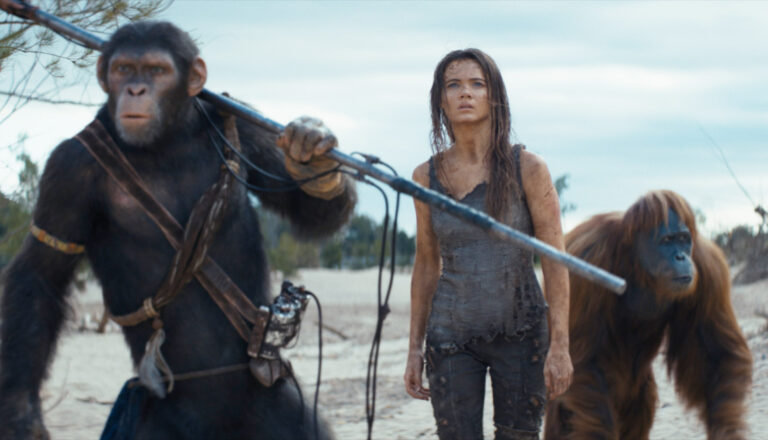
Kingdom of the Planet of the Apes
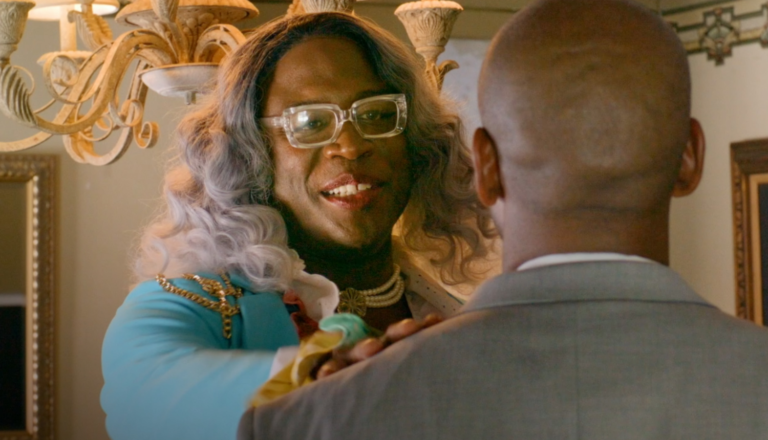
Not Another Church Movie
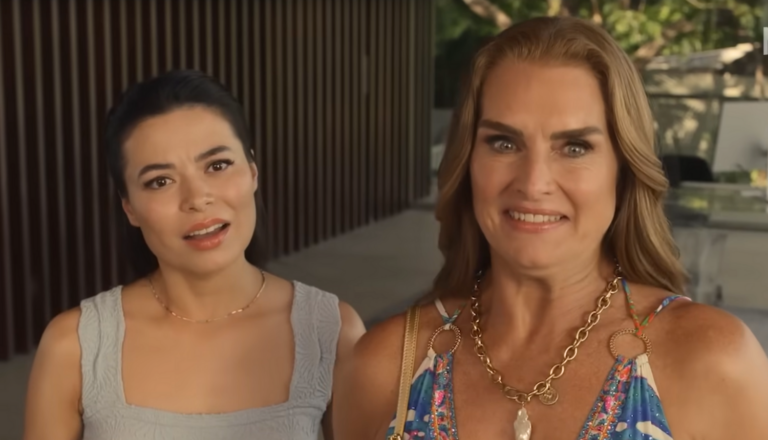
Mother of the Bride
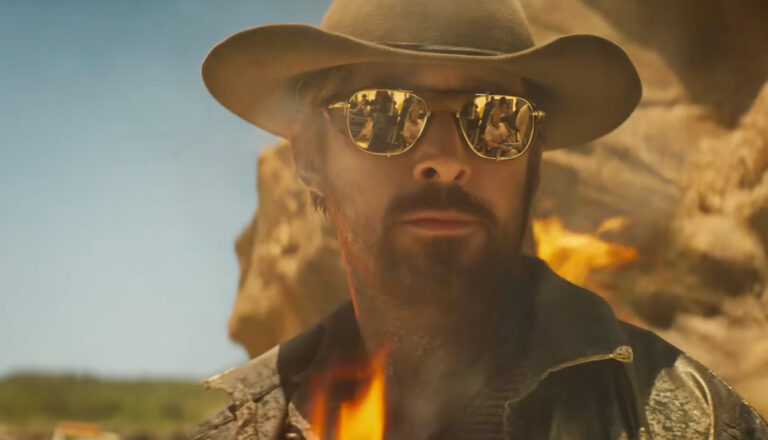
The Fall Guy
Weekly reviews straight to your inbox.

Log in or sign up for Rotten Tomatoes
Trouble logging in?
By continuing, you agree to the Privacy Policy and the Terms and Policies , and to receive email from the Fandango Media Brands .
By creating an account, you agree to the Privacy Policy and the Terms and Policies , and to receive email from Rotten Tomatoes and to receive email from the Fandango Media Brands .
By creating an account, you agree to the Privacy Policy and the Terms and Policies , and to receive email from Rotten Tomatoes.
Email not verified
Let's keep in touch.

Sign up for the Rotten Tomatoes newsletter to get weekly updates on:
- Upcoming Movies and TV shows
- Trivia & Rotten Tomatoes Podcast
- Media News + More
By clicking "Sign Me Up," you are agreeing to receive occasional emails and communications from Fandango Media (Fandango, Vudu, and Rotten Tomatoes) and consenting to Fandango's Privacy Policy and Terms and Policies . Please allow 10 business days for your account to reflect your preferences.
OK, got it!
Movies / TV
No results found.
- What's the Tomatometer®?
- Login/signup
Movies in theaters
- Opening this week
- Top box office
- Coming soon to theaters
- Certified fresh movies
Movies at home
- Fandango at Home
- Netflix streaming
- Prime Video
- Most popular streaming movies
- What to Watch New
Certified fresh picks
- Kingdom of the Planet of the Apes Link to Kingdom of the Planet of the Apes
- The Fall Guy Link to The Fall Guy
- The Last Stop in Yuma County Link to The Last Stop in Yuma County
New TV Tonight
- Doctor Who: Season 1
- Blood of Zeus: Season 2
- Pretty Little Liars: Summer School: Season 2
- Black Twitter: A People's History: Season 1
- Dark Matter: Season 1
- Bodkin: Season 1
- Hollywood Con Queen: Season 1
- The Chi: Season 6
- Reginald the Vampire: Season 2
- Love Undercover: Season 1
Most Popular TV on RT
- Baby Reindeer: Season 1
- A Man in Full: Season 1
- Fallout: Season 1
- Hacks: Season 3
- The Sympathizer: Season 1
- Them: Season 2
- Dead Boy Detectives: Season 1
- X-Men '97: Season 1
- Best TV Shows
- Most Popular TV
- TV & Streaming News
Certified fresh pick
- Doctor Who: Season 1 Link to Doctor Who: Season 1
- All-Time Lists
- Binge Guide
- Comics on TV
- Five Favorite Films
- Video Interviews
- Weekend Box Office
- Weekly Ketchup
- What to Watch
100 Best Movies on Tubi (May 2024)
The Best Shows on Amazon Prime Video to Watch Right Now (May 2024)
Asian-American Native Hawaiian Pacific Islander Heritage
What to Watch: In Theaters and On Streaming
Rotten Tomatoes Predicts the 2024 Emmy Nominations
8 Things To Know About The New Season Of Doctor Who
- Trending on RT
- Furiosa First Reactions
- Streaming in May
- New Doctor Who
- Planet of the Apes Reviews
The Last Duel Reviews

The titular duel absolutely lives up to the hype. The brutality of the time is encapsulated perfectly in Ridley's vision.
Full Review | Feb 24, 2024
The Last Duel is really the best of both worlds: action-packed and devoted to the right side of history.
Full Review | Original Score: 7.9/10 | Oct 30, 2023
Rashomon may have inspired the story, but this is like the paper that Rashomon came wrapped in, a costume drama with modern relevance detailed in a highlighter pen. Everyone is locked up in the tragedy of their circumstances, but you don’t feel it.
Full Review | Sep 16, 2023
Ridley Scott’s best film in awhile. An epic, brutal, but intimate at its heart/soul of its story. A lot of this comes thanks to a fascinating script that brings a unique structure to the entire story.
Full Review | Jul 26, 2023
The actual duel is one of the most nerve-wracking sequences of the last few years, compensating the audience's patience with a satisfying climax.
Full Review | Original Score: A- | Jul 25, 2023
In The Last Duel, Comer does a magnificent job of portraying a smart, sensitive female trapped in a world where she is considered merely the property of a male.
Full Review | Jun 5, 2023
With the stakes set so high, Scott rises to the challenge and delivers a brutal, visceral “last duel” with complex narrative designs and a phenomenal carousel of performances.
Full Review | Original Score: 4/5 | Nov 12, 2022
It’s troublesome, and thematically counterintuitive, that the violence is more believable than the on-the-nose manner in which the film handles discussion of the sexual assault; fortunately, both elements are equal in their lack of subtlety.
Full Review | Sep 15, 2022
Though slightly hobbled by its script’s unconventional style, The Last Duel soars when the sensational Jodie Comer takes center stage in the third act.
Full Review | Original Score: 3.5/5 | Sep 1, 2022
Despite a stellar cast, a legendary director and a potentially interesting storytelling structure, the film itself fails to deliver on its stated purpose or provide adequate entertainment to overlook its shortcomings.
Full Review | Original Score: 2/5 | Aug 22, 2022
The movie hits the mark, this has always happened, and things haven't changed much. [Full review in Spanish]
Full Review | Jun 28, 2022
It's Comer who shines the brightest in this film. She gives Marguerite a strong and powerful backbone that allows her to stand up for what's right and for all women.
Full Review | Original Score: 8/10 | Jun 21, 2022
THE LAST DUEL is a super immersive production, brought to life by powerhouse performances, thats brutal and entertaining, as well as thought-provoking. Simply a great package.
Full Review | Original Score: 8/10 | Apr 25, 2022
The Last Duels long runtime and grim subject matter may make it a difficult watch, but ... this is a brutal and highly effective historical drama that explores gender dynamics and egomania in a way thats depressingly still topical.
Full Review | Original Score: 9/10 | Feb 28, 2022
Ridley Scott is still at the top of his game and the film gives Comer the iconic and impressive role needed to define a career.
Full Review | Original Score: A | Feb 15, 2022
Scott hasn't felt this engaged in his material for many years.
Full Review | Original Score: 4/4 | Feb 12, 2022
Jodie Comer single-handedly carries "The Last Duel," while her co-actors (Ben Affleck, Matt Damon, and Adam Driver) flail.
Full Review | Original Score: D+ | Feb 4, 2022
The Last Duel is certainly smart enough to satisfy. For those who see its game and hope it has something more to say than what it is, heres hoping this isnt the final word.
Full Review | Feb 3, 2022
The climactic combat is motivated more by the knight's ego than by his concern for the welfare and honor of his wife.
Full Review | Original Score: 3.5/4 | Feb 3, 2022
While certain sequences will be uncomfortable, Ridley Scott's ability to tell a period story that is so relevant today is uncanny.
Full Review | Feb 2, 2022
- Search Please fill out this field.
- Newsletters
- Sweepstakes
- Movie Reviews
The Last Duel review: A starry, brutal epic rises above its ridiculous hair
You've got (chain)mail.
:max_bytes(150000):strip_icc():format(webp)/image001-1-96bff255cc7d4c8da59d9d4192867e86.jpg)
However unlucky you might have been in life, be glad you're not a lady living through the 14th century. There's not much that Jodie Comer 's Marguerite de Carrouges doesn't endure in The Last Duel , a movie that is about many things — love, war, the vagaries of the medieval French legal system — but mostly, in the end, male vanity. It's also helmed by Ridley Scott , a director who knows his way around mud and blood and adrenaline, and stacked with A-list actors who have obligingly done terrible things to their hair. Are you not entertained? You will be, but queasily, maybe: Duel is entirely, often sensationally watchable without ever quite justifying why it needs to remind us what the world has done to women for centuries. (Or how it chooses to do that by playing out an extended rape scene not once but twice.)
It begins, like so many cautionary tales do, at the end: With two noblemen, Jean de Carrouges ( Matt Damon ) and Jacques Le Gris ( Adam Driver ) preparing to fight to the death for Marguerite's honor. She's adamant that Le Gris took her against her will; he's adamant he never touched her. Jean is ostensibly there to defend his wife, but he and Jacques have a long history — which the movie soon unspools by retelling the story through several viewpoints, Rashomon style. First and perhaps least interesting is Jean's: A widowed squire with an honorable name but no money, he's a dedicated soldier of the young King Charles VI (played as a giggling, vaguely sociopathic princeling by Alex Lawther). What Jean lacks in charm and couth he makes up for on the battlefield, and his title is enough to win him the hand of Marguerite, a land-rich beauty whose father has somehow disgraced the Crown, slashing her chances of a better, wealthier match — or at least one who doesn't have a pitted scar running from his cheek to his chin line.
Jean and Jacques are actually old friends thanks to their time in the trenches together, though it's hard to see how they connect otherwise: Jean is blunt and boorish, with a tendency to take outraged offense at any perceived slight; Driver's Jacques is a dashing (pre-)Renaissance man who reads Latin and German and looks fantastic in a cape. It's clear who the king's cousin, Count Pierre d'Alencon ( Ben Affleck ) prefers, and his favor goes a long way. When he casually gifts a part of Marguerite's dowry to Jacques, Jean does not, unsurprisingly, take the news well. But the pair mostly manage to tamp down their animosity until the day Jacques surprises Marguerite alone at home, and the disputed incident takes place. She demands justice, though not the kind her husband has in mind; he wants to bypass judicial remedies and proceed directly to a duel.
As Jacques' and then finally Marguerite's version of events play out, some fuller picture of the truth, however subjective that may be, begins to coalesce. Damon and Affleck cowrote the screenplay with writer-director Nicole Holofcener ( Enough Said , Friends with Money ), which was probably wise; a story so centered on sexual assault without a woman's voice in the script would feel frankly gross in the year of our Lord 2021. It's impossible to tell of course exactly what each one's contribution was, though on screen at least, it's Affleck who gets to have the most fun: His debaucherous Count — a breezy libertine in gold brocade and fluffed blond bangs — lifts the movie every time he's in the frame. Damon happily forfeits his likability for the sour, spluttering Jean, and Driver, a brooding Byronic stomper, neatly toes the line between charlatan and hero.
Scott manages to fill in the finer brushstrokes of all those characters and still fit the kind of bravura action set pieces he's known for; the fight scenes are breathlessly, bone-crunchingly brutal. The film also feels like something vanishingly rare these days: a big-screen drama with budget and scope, richly told for grown adults. (That the accents veer freely from flutey Shakespearean British to flat California standard is somehow not nearly as distracting as it should be — or far less, at least, than Damon's honey-badger mullet). But the movie (in theaters Oct. 15) wouldn't be what it is without Comer: the Emmy-winning Killing Eve actress takes what could have been a bland damsel role and makes her furiously, incandescently real. Rape back then, tellingly, was considered not a sexual offense against the victim but a property crime done to her husband. "There is no right ," one character admonishes early on, "only the power of men." Duel is a sprawling, lavish testament to that, and all the things done in the name of ego, king, and country. But it's a woman who brings it home. Grade: B+
Related content:
- Duel Perspectives: How Matt Damon, Ben Affleck, and Nicole Holofcener teamed up for The Last Duel
- No Time to Die review: Daniel Craig's James Bond bids a bombastic, bittersweet farewell
- The Tragedy of Macbeth review: Shakespeare gets a stark, sumptuous update
Related Articles
clock This article was published more than 2 years ago
Beneath the chain mail and bad hair, ‘The Last Duel’ is a movie about mansplaining and toxic masculinity

From its ritualized opening scene, “The Last Duel” bears all the contours of a hoary medieval spectacle, the kind of crunchy-gravel and clanging-chain mail fantasy that harks to a lamentably bygone age of courtly love and chivalric virtue.
But all is not as it seems in this sly study of systemic patriarchy and narrative revisionism. Like most good yarns, “The Last Duel” begins at the ending — in 1386, when a French knight named Jean de Carrouges (Matt Damon) confronts onetime friend Jacques Le Gris (Adam Driver). De Carrouges’s wife, Marguerite (Jodie Comer), has accused Le Gris of rape; to preserve his good name and — purely an afterthought — justice for his wife, de Carrouges has challenged Le Gris to a fight to the death: Whoever survives will by definition be in the right, with God on his side. (“The Last Duel” is based on Eric Jager’s book about the episode , and tacks closely to real-life events.)
Flash back several years earlier, when de Carrouges and Le Gris are allies fighting on behalf of King Charles VI (played with fey indifference by Alex Lawther). “The Last Duel” is structured in three chapters, the first telling “the truth according to Jean de Carrouges,” the second hewing to Le Gris’s version of events and the third relating Marguerite’s story. What ensues is an intriguing exercise in unreliable storytelling and justification, as the men puff their stories up with hyperbole and self-flattering glory. By the time the film finally focuses on Marguerite, she feels like an afterthought amid a welter of warring egos, performative male aggression and swordplay both literal and metaphoric.
These 21 movies are getting Hollywood’s hopes up — and people talking — this fall
Written by Damon and Ben Affleck — who portrays a manipulative, morally degenerate Count Pierre d’Alençon, under whom de Carrouges serves as a vassal — “The Last Duel” is clearly designed to speak to our present moment: Nicole Holofcener collaborated on the script, and her wry, observant humor courses through the film, as do acerbic nods toward the pride and protection, property rights and power plays that underlie ideas of purity and sexual rectitude. (“There is no ‘right,’ ” Marguerite’s mother-in-law, played by the fabulous Harriet Walter, insists at one point. “There is only the power of men.”) Director Ridley Scott evinces his prodigious gifts for setting a scene and purveying rich production values: “The Last Duel” looks sensational, with no detail spared for either the fetishistically layered costumes of the era (that chain mail!) or the graphic grotesquerie of battle (that spurting blood!). At its core, though, “The Last Duel” is less about the 14th century than our own, and how issues like consent, control and hierarchies of credulity haven’t evolved as much as morphed to fit new mores.
It’s a provocative idea, and for most of its running time “The Last Duel” keeps it aloft by means of compelling characters and a sneakily shifting story. Despite haircuts that evoke a “Monty Python and the Holy Grail” outtake, Damon and Affleck acquit themselves well in roles that could be generously described as counterintuitive. Between his regrettable mullet and tufty chin-beard in “The Last Duel” and his Everyman dad-bod in “Stillwater,” Damon might deserve an award for least vain actor of 2021. Driver is allowed to look more conventionally handsome, even if his character is slippier: Once the rhythms of the piece take over, he makes Le Gris his own, keeping friends, enemies and audiences guessing as to his own buried ambitions.
The filmmakers cannily reward viewers who come to “The Last Duel” for pomp and pageantry: It’s here, albeit presented within the frame of masculinity at is most toxically overcompensating. In fact, all the bro-code acting out would be ludicrous if it wasn’t so murderous. Part of the deal is that if Jean de Carrouges dies, Marguerite must be burned alive for having lied about her assault. As a portrayal of preening male vanity and misogynistic hypocrisy that exists to this day, “The Last Duel” reaches at relevancy with admirable ambition.
But its baggy structure and long-winded running time wind up fighting its core principle. By the time it circles back to the titular confrontation — the ultimate cancellation — we still haven’t truly known Marguerite or heard her full story (although we’ve seen her assault gratuitously staged at least twice). Comer, who embodied one of TV’s great antiheroines as Villanelle in “ Killing Eve ,” here seems uncharacteristically meek and voiceless, forced to communicate by way of meaningful glances through tear-welled eyes. “The Last Duel” is an entertaining movie, even an intriguing one. But audiences might be forgiven for thinking, upon leaving the theater, that they’ve just been very nobly and very honorably mansplained.
The Last Duel (153 minutes, at area theaters) is rated R for strong violence including sexual assault, sexual content, some graphic nudity and coarse language.

- Skip to main content
- Keyboard shortcuts for audio player

Movie Reviews
- LISTEN & FOLLOW
- Apple Podcasts
- Google Podcasts
- Amazon Music
Your support helps make our show possible and unlocks access to our sponsor-free feed.
'The Last Duel' is a 'Rashomon'-style #MeToo story — and a messy medieval epic
Justin Chang

Adam Driver and Matt Damon play real-life combatants Jacques Le Gris and Sir Jean de Carrouges in The Last Duel. Patrick Redmond/20th Century Studios via AP hide caption
Adam Driver and Matt Damon play real-life combatants Jacques Le Gris and Sir Jean de Carrouges in The Last Duel.
The Last Duel is a sprawling, often ungainly movie — a talky, three-part Rashomon -style drama that mixes past and present-day politics — but there's a bracing intelligence to its messiness. It opens the way a lot of Ridley Scott period epics do, on a gloomy day with two sides preparing for battle.
We're in Paris in the year 1386, and the combatants are the dashing squire Jacques Le Gris — that's Adam Driver — and the sullen knight Sir Jean de Carrouges — that's Matt Damon . Jean's wife, Marguerite, played by Jodie Comer, watches anxiously from her seat. Just as the two men are about to clash lances, the movie cuts away and rewinds several years to show what brought these three characters to this moment.
There's a lot more rewinding to come. The Last Duel is based on a true story that it tells no fewer than three times, each time from a different character's perspective. The script, adapted from Eric Jager's nonfiction book , emerged from a unique collaboration among three writers. Damon and Ben Affleck wrote the first two chapters focusing on the men, while Nicole Holofcener wrote the third chapter centering on Marguerite. It's an ingenious approach to what plays like a medieval #MeToo story, tackling the dynamics of power, class and gender in an era when women were regarded as little more than male property.
The opening chapter focuses on Carrouges, played by Damon with a righteous scowl and a mullet so hideous it almost immediately turns you against him. Carrouges is a brave warrior from a long line of brave warriors, but also a proud, petty man with a chip on his shoulder. We first see him and Le Gris in 1370, fighting valiantly against the English and becoming close friends. But Carrouges begins to feel resentful when their superior — Count Pierre d'Alençon, a saucy libertine played hilariously by Affleck — takes Le Gris under his wing. The count even gives Le Gris a coveted piece of land that was originally intended for Carrouges as part of his wife Marguerite's dowry, leading to years of legal struggles.
Then one evening, Marguerite comes forward and tells her husband that while he was away, Le Gris came to their castle in Normandy and raped her. Carrouges takes the accusation public, setting in motion a duel between himself and Le Gris, which would become the last trial by combat officially recognized in France.
At this point, the first chapter ends and the movie returns to the beginning, this time replaying events from Le Gris' perspective. As one of the count's closest allies, Le Gris has come to enjoy a life of privilege and debauchery, and Driver basically plays him as God's gift to women. That stokes his tensions with Carrouges, who eventually is made a knight and demands that Le Gris show him respect.
Around this time, Le Gris falls madly in love with Marguerite and becomes certain that she reciprocates his feelings. That brings us to their fateful encounter, in which Le Gris convinces himself that Marguerite's protests are merely the signs of a guilty conscience. But even though the movie is showing us his version of events, it rejects his delusion completely: What we see is unmistakably a sexual assault, in which Marguerite repeatedly says no and tries to push him away.
The third chapter, which unfolds from Marguerite's perspective, revisits the rape scene, and for some viewers — fair warning — it may seem like one grueling replay too many, especially since Marguerite's trauma is now even more apparent. But this is also the chapter in which the moral arc of the story snaps into focus. After so much boorish male behavior, fully embodied by Damon and Driver, the fierce intelligence and humanity of Comer's performance is like a balm. Marguerite emerges as by far the most honest and clear-eyed of the movie's three leads, heroic in her refusal to stay silent about what she endured.
Near the end of the film, Marguerite finds herself on trial, forced to defend her rape allegation in a court full of men trying to discredit her. The sequence plays like dark satire, suggesting how much has changed and also how much hasn't. And then there's the duel, which feels almost subversively anticlimactic: It delivers all the gory virtuosity you'd expect from Ridley Scott, but something about it rings deliberately hollow. It hardly matters which man wins, the movie seems to be saying, in a world where women are destined to lose.
- the last duel
Review: Ridley Scott’s epic ‘The Last Duel’ rebukes the patriarchy in every era
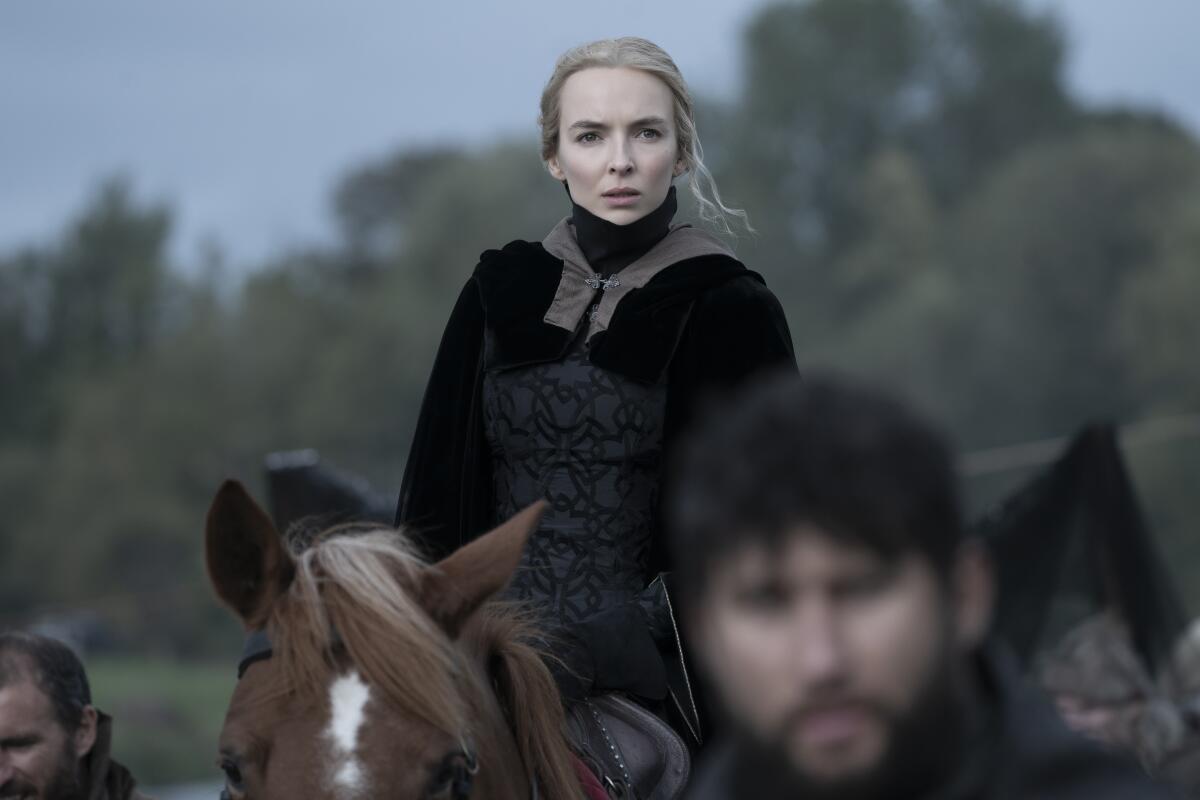
- Show more sharing options
- Copy Link URL Copied!
The Times is committed to reviewing theatrical film releases during the COVID-19 pandemic . Because moviegoing carries risks during this time, we remind readers to follow health and safety guidelines as outlined by the Centers for Disease Control and Prevention and local health officials .
Toward the end of Ridley Scott’s “The Last Duel,” an epic evisceration of bad men and worse hair, a court official argues that a woman must experience sexual pleasure in order to conceive a child. “A rape,” he concludes, “cannot cause a pregnancy.” That’s your cue to scoff at the dire intellects of 14th century France, but it may also remind you of some of the comparably idiotic things that male politicians have uttered in our ostensibly more enlightened times. I doubt I’ll be the only viewer to flash back on the career-ending words of the former Missouri congressman Todd Akin, who in 2012 declared that the female body has ways of shutting down pregnancies in cases of “legitimate rape.”
Those words resurfaced in the wake of Akin’s death earlier this month , a circumstance that the screenwriters — Matt Damon, Ben Affleck and Nicole Holofcener — could hardly have foreseen. Nonetheless, their canny grasp of the political continuities between past and present is one of their script’s more pointed surprises. And surprises are key here: A bloody medieval drama hinging on a sexual assault case, after all, is hardly what anyone might have expected from Damon and Affleck, reteaming on the page for the first time since their Oscar-winning script for “Good Will Hunting,” or from Holofcener, known for her sharp contemporary comedies like “Please Give” and “Enough Said.” A willingness to subvert expectations is one reason this ungainly, ingenious and altogether fascinating collaboration works as well as it does.
Adapted from Eric Jager’s 2004 book, “The Last Duel” is a sprawling, often darkly funny account of the rivalry between two Normandy-born frenemies — Sir Jean de Carrouges (Damon), a knight, and Jacques Le Gris (Adam Driver), a squire — and the rape accusation brought against Le Gris by Carrouges’ wife, Marguerite (Jodie Comer). That charge led Carrouges and Le Gris to their bloody final reckoning, the last trial by combat ever officially recognized in France. The movie opens with the duel about to get underway on a December morning in Paris in 1386 — a prologue that finds Scott in fine action-movie fettle, with enough clomping of hooves and clashing of weapons to stir memories of “Gladiator” and “Kingdom of Heaven,” to say nothing of “The Duellists,” his excellent 1977 debut.
But the movie to which this one bears the most significant resemblance is of even older vintage. It would be hard at this point to overstate the cultural cachet of “Rashomon,” an inspiration for countless movies about the elusive nature of truth (plus one of the greatest “Simpsons” jokes ever written ). Its influence here is obvious: After that thunderous opening, “The Last Duel” abruptly cuts away, rewinds several years and proceeds to unravel its story in three distinct chapters, each one playing the same events from a different character’s perspective. Affleck and Damon wrote the male-centric first two chapters; Holofcener wrote the third, which adopts Marguerite’s point of view.
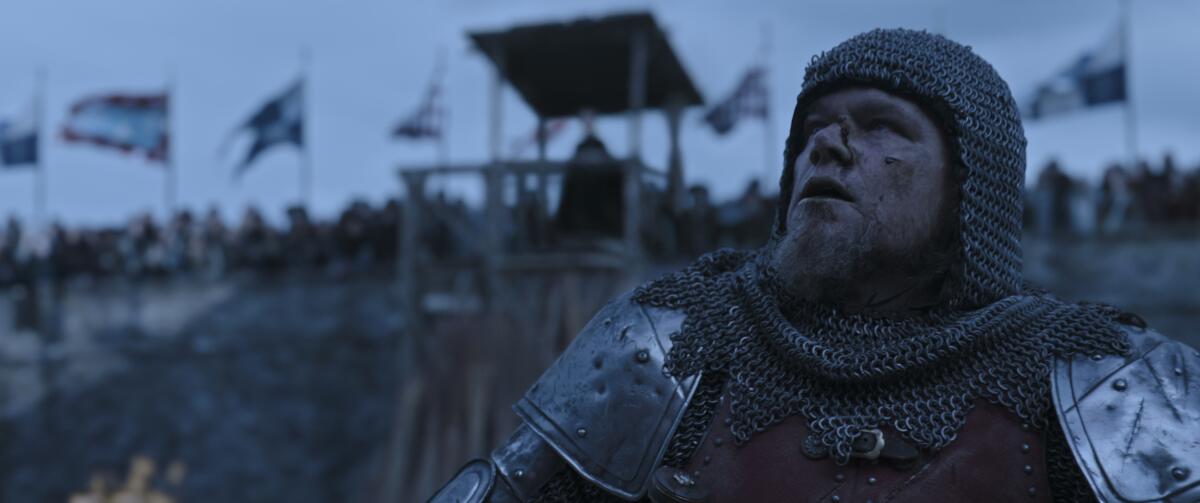
First up is Carrouges, played by Damon with a battle-scarred cheek, a righteous scowl and a mullet so hideous it turns you against him almost immediately, even in his own story. And it’s worth unpacking the hair in this movie, by the way, which is as revealing as the dripping candle wax of Arthur Max’s production design and the muted richness of Janty Yates’ costumes. The mere sight of Damon’s unkempt scraggle tells you everything you need to know about what a tool Carrouges is; the spectacle of Driver, sporting the long, dark tresses you might find on the cover of a medieval bodice-ripper, announces Le Gris as the life of the party.
No tonsorial slouch himself is their overlord, Count Pierre d’Alençon, a saucy libertine (hilariously played by a peroxide-blond Affleck) who makes no secret of his preference for Le Gris over Carrouges. (The mutual loathing between Affleck’s and Damon’s characters is one of the movie’s slyer jokes.) As the lowly squire begins to rise above the noble-born knight, their once-close friendship, forged years earlier in the thick of battle, swiftly disintegrates. Land and title disputes follow, as do some halfhearted attempts at reconciliation. Complicated dynamics of class, power and real estate are parsed, often in winkingly anachronistic language (“I’m broke!” the count declares at one point). But once Carrouges marries Marguerite, whose beauty catches Le Gris’ ever-watchful eye, all three characters are clearly destined for a tragic collision.
The first chapter exaggerates Carrouges’ righteousness; the second chapter flatters Le Gris’ ego. Enormously popular with the women he beds each night in Count Pierre’s party-hearty boudoir, Le Gris has no trouble believing that, once he’s fallen in love with Marguerite, she must naturally reciprocate his feelings. And so when he enters her home and forces himself on her while Carrouges is absent, he dismisses her anguished protests as merely the passionate outcries of a guilty conscience. The audience will suffer no such delusion: Even in a rendering of events that favors Le Gris’ perspective, it’s impossible to read this scene as anything other than the brutal violation it is.
There’s an obvious measure of calculation in that depiction; in retooling its medieval times for a #MeToo-era audience, “The Last Duel” is eager to present an unambiguous, morally uncomplicated view of what does and doesn’t constitute consent. That puts the movie in the tricky position — fair warning — of effectively replaying the rape scene from Marguerite’s perspective in the movie’s third chapter, with little variation except that her already obvious agony seems even more front-and-center than before.
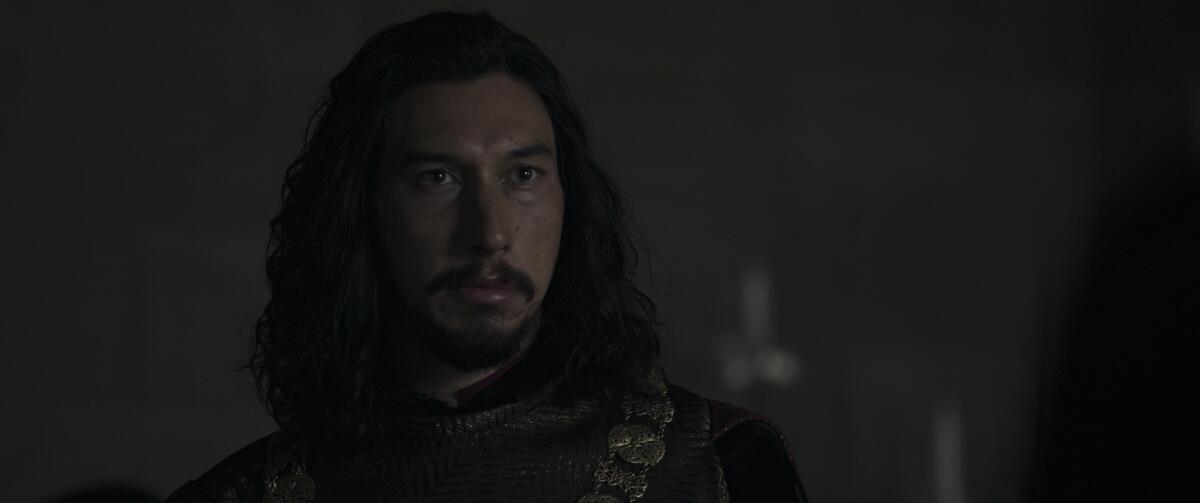
But if the scene feels repetitive, it isn’t exploitative, and Holofcener wisely perceives Marguerite as more than the sum of her traumas. She may be trapped in a dull marriage that pressures her to produce a son (Carrouges’ heir problem is almost as bad as his hair problem) and stuck in a world where everyone, including her own mother-in-law (an acerbic Harriet Walter), regards her as chattel. But under these adverse circumstances, Marguerite distinguishes herself as a natural-born leader (she runs her husband’s business better than he does) and, ultimately, the rare woman willing to speak out against a rapist and the age-old patriarchy that enables him.
Through Comer’s intelligent, fiercely empathetic performance, Marguerite becomes the movie’s conscience, one who forges a direct link between the injustices of the past and those of the present. When Marguerite finds herself on trial, forced to defend her rape allegation in a court full of proto-mansplainers, the #MeToo subtext all but ceases to be subtext. “The Last Duel” may superficially mimic “Rashomon,” but in these moments it arrives at a decidedly different conclusion from Akira Kurosawa’s classic. Truth isn’t always ambiguous; sometimes it’s just suppressed, ignored and written out of history.
All of which runs the risk of making this movie sound obvious in its indictment of the arrogance, stupidity and awfulness of men in every century. Tell us something we don’t know! But if “The Last Duel” hits some familiar notes, it hits them, more often than not, with both unfeigned anger and an invigoratingly dark sense of humor. There’s a savage, self-flagellating gusto in the performances of Driver and especially Damon, a willingness to seem truly loathsome in ways that the sheen of movie stardom doesn’t always allow.
That subversiveness extends to the (anti)climactic duel itself, which Scott stages with all the bloody virtuosity you’d expect, but which nonetheless rings curiously, almost deliberately hollow. It hardly matters which man wins, the movie seems to be saying, in a world where women are destined to lose.
‘The Last Duel’
Rated: R, for strong violence including sexual assault, sexual content, some graphic nudity and language Running time: 2 hours, 33 minutes Playing: Starts Oct. 15 in general release
More to Read

Review: Ralph Fiennes, an older Macbeth, builds sympathy for a killer with soulful weariness
May 1, 2024
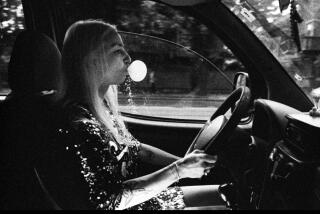
Review: ‘Do Not Expect Too Much From the End of the World’ is media satire at its most darkly funny
March 20, 2024
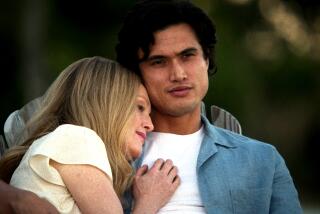
Column: When it comes to Vili Fualaau, ‘May December’ wants to have its cake and eat it too
Jan. 7, 2024
Only good movies
Get the Indie Focus newsletter, Mark Olsen's weekly guide to the world of cinema.
You may occasionally receive promotional content from the Los Angeles Times.

Justin Chang was a film critic for the Los Angeles Times from 2016 to 2024. He won the 2024 Pulitzer Prize in criticism for work published in 2023. Chang is the author of the book “FilmCraft: Editing” and serves as chair of the National Society of Film Critics and secretary of the Los Angeles Film Critics Assn.
More From the Los Angeles Times
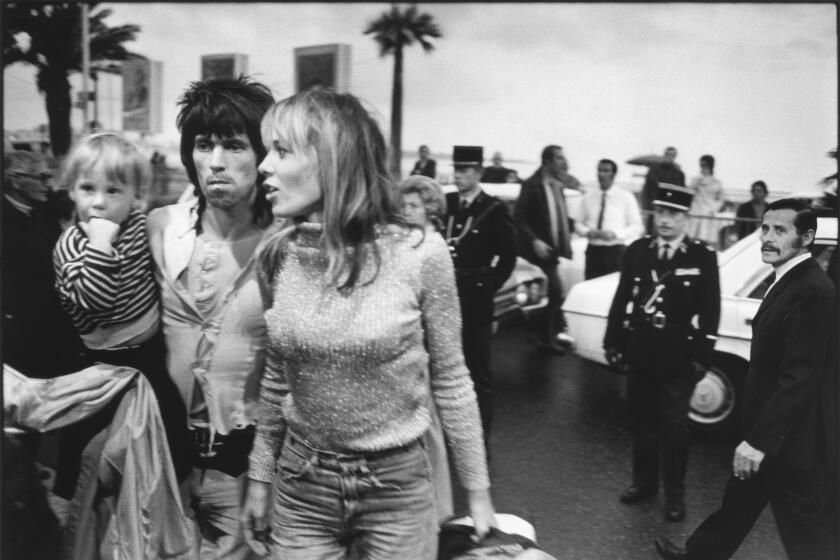
Review: ‘Catching Fire: The Story of Anita Pallenberg’ supplies belated respect for a rock muse
May 10, 2024
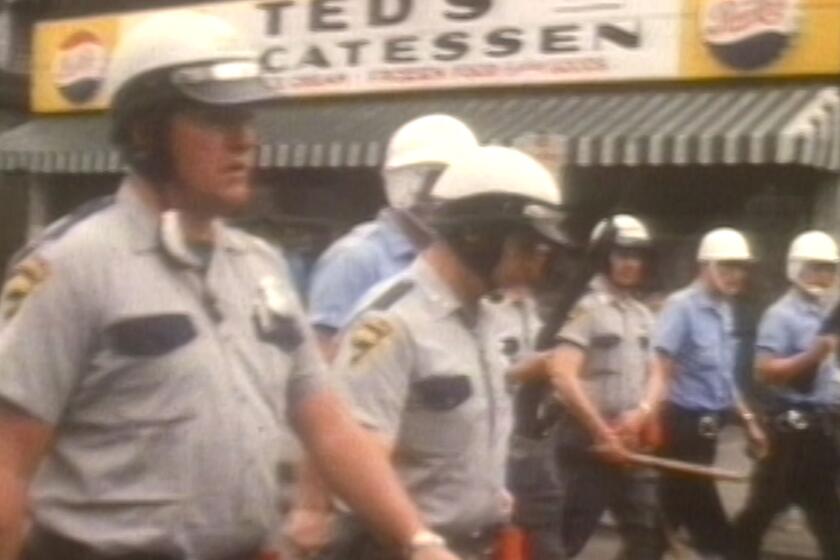
Review: Coolly argued but driven by fury, ‘Power’ examines the history of American policing

In a push for revenue ahead of the 100th Oscars, academy announces $500-million campaign

Filmmaker Yance Ford presents the police as the ‘armies that they have become’ in ‘Power’
May 9, 2024
Advertisement
Supported by
Critic’s Pick
‘The Last Duel’ Review: A Medieval Epic in the Age of #MeToo
Ridley Scott and his all-star cast rip the moldy fig leaf off chivalric romance in a he-said, he-said, she-said spectacle.
- Share full article

By Manohla Dargis
It’s no surprise that Ridley Scott, who’s made his share of swaggering manly epics, has directed what may be the big screen’s first medieval feminist revenge saga. In addition to his love for men with mighty swords, Scott has an affinity for tough women, women who are prickly and difficult and thinking, not bodacious cartoons. They’re invariably lovely, of course, but then everything in Ridley Scott’s dream world has an exalted shimmer.
Even the mud and blood gleam in “The Last Duel,” an old-style spectacle with a #MeToo twist. Based on the fascinating true story of a lady, a knight and a squire in 14th-century France, the story was big news back in the day and has been retrofitted to contemporary sensibilities by Scott and an unusual troika of screenwriters: Nicole Holofcener and two of the movie’s stars, Matt Damon and Ben Affleck. Together, they tear the moldy fig leaf off a Hollywood staple, the Arthurian-style romance — with its chivalric code, knightly virtues and courtly manners — to reveal a mercenary, transactional world of men, women and power. The result is righteously anti-romantic.
Damon, uglied up with slashing facial scars and a comically abject mullet, plays Jean de Carrouges, a nobleman down on his luck who makes ends meet by fighting on behalf of the king. The machinations start early and soon go into overdrive after he marries a younger woman, Marguerite (Jodie Comer), who brightens his life but doesn’t do much for his sour disposition or unfortunate grooming. Vainglorious and petty, his lips screwed into a pucker, Jean settles down with Marguerite but seethes over his friend turned antagonist, Jacques Le Gris (Adam Driver, a juiced-up Basil Rathbone), a social climber aligned with Count Pierre, a licentious power player (Affleck, in debauched glory).
It’s a juicy lineup of familiar characters who are greedier and pettier than those that usually populate historical epics. But there is no noblesse oblige or courtly love, no dragons, witchy women or aggrandizing British accents. Instead, there are debts, grudges, fights, liaisons, an occasional naked nymph and men endlessly jockeying for position. Jean marries Marguerite to boost his prestige and wealth; Jacques enriches himself by currying favor with Pierre. For her part, Marguerite is passed from father to husband, who later, in a startling moment, commands her to kiss Jacques in public as evidence of Jean’s resumed good will toward his frenemy. It’s a catastrophic gesture.
The story’s action is visceral and relentless; the atmosphere gray and thick with intrigue. Scott likes to throw a lot on the screen — the movie churns with roaring men, galloping horses, shrieking minions — which can clutter up a story but here creates insistent momentum. This churn throws the quieter bits into relief, giving you room to breathe and the characters time to scheme. These lulls also allow the filmmakers to lay out some of the brute details of everyday life in the Middle Ages, even for a noble like Jean who slogs off to war for money. In this world of homosocial relations, men continually and often violently negotiate their place among other men, and always for gain.
The script is solid, shrewd and fairly faithful to its source material, Eric Jager’s nonfiction page-turner “The Last Duel: A True Story of Crime, Scandal and Trial by Combat.” The crime in question was the alleged rape in 1386 of the wife of one noble by another of lesser rank. Her husband presented the case to Charles VI , demanding the right to a judicial duel, or trial by combat. If the husband wins it ostensibly proves the truth of his claim, a.k.a. God’s will. Die or yield, he is guilty; if he survives, he will be hanged, and his wife burned alive. As Jager emphasizes, rape was a crime in medieval Europe, even punishable by death, but it wasn’t a crime against the woman but her male guardian.
Jager gives the three figures at the center of this drama their due, although, like the medieval text that inspired him, his account is weighted toward the dueling noblemen. The movie tries to more emphatically foreground Marguerite by making her a relatively equal participant in her own tragedy. It does this on a structural level by dividing the story into chapters and placing her version of events alongside those of the two men: he said, he said, she said. This splitting evokes “Rashomon,” in which various characters narrate the same crime — also a rape — from conflicting points of view, creating a sense of relative truth. But there’s no such ambiguity in “The Last Duel.”
Rape as a plot device has a long, grotesque history; it’s useful for metaphors and shocks but rarely has anything to do with women, their bodies or pain. In presenting Marguerite’s point of view — everything shifts meaningfully in her version, including how she sees her husband and the assault — “The Last Duel” seeks to upend that tradition. It doesn’t fully succeed and the movie still leans toward the men, their actions and stratagems. Partly this is a problem of history. As a 14th-century woman, Marguerite is bred to acquiesce and, for the most part, is acted upon rather than acts. While the movie is feminist in intent and in meaning, and though she’s given narrative time, she remains frustratingly opaque, without the inner life to balance the busily thrashing men.
“The Last Duel” works best as an autopsy of corrosive male power, which creates a certain amount of unresolved tension given how much Scott enjoys putting that power on display, including during the duel. The movie is weirdly entertaining, but the world it presents, despite its flourishes of comedy, is cold, hard and unforgiving. Few come out looking good, not the antagonists or giggly king (Alex Lawther), the conniving clergyman or Jean’s unsympathetic mother (Harriet Walter), a proxy for every woman who’s ever told other women to shut up and take it. Marguerite didn’t, but however blurrily history remembers her, she made her mark with a vengeance.
The Last Duel Rated R for sexual violence and the usual medieval barbarism. Running time: 2 hours 32 minutes. In theaters.
Manohla Dargis has been the co-chief film critic since 2004. She started writing about movies professionally in 1987 while earning her M.A. in cinema studies at New York University, and her work has been anthologized in several books. More about Manohla Dargis
Explore More in TV and Movies
Not sure what to watch next we can help.a.
Andy Serkis, the star of the earlier “Planet of the Apes” movies, and Owen Teague, the new lead, discuss the latest film in the franchise , “Kingdom of the Planet of the Apes.”
The HBO series “The Sympathizer” is not just a good story, it’s a sharp piece of criticism on Vietnam war movies, our critic writes .
In “Dark Matter,” the new Apple TV+ techno-thriller, a portal to parallel realities allows people to visit new worlds and revisit their own past decisions .
The tennis movie “Challengers” comes to an abrupt stop midmatch, so we don’t know who won. Does that matter? Our critics have thoughts .
If you are overwhelmed by the endless options, don’t despair — we put together the best offerings on Netflix , Max , Disney+ , Amazon Prime and Hulu to make choosing your next binge a little easier.
Sign up for our Watching newsletter to get recommendations on the best films and TV shows to stream and watch, delivered to your inbox.
Review: 'The Last Duel' is dude-filled drama that doesn't do enough with its female perspective

Ridley Scott is one of the best directors you can have at the helm of a historical action thriller, though is a bit shakier when it comes to a Middle Ages #MeToo tale.
“The Last Duel” (★★½ out of four; rated R; in theaters Friday) is an ambitious medieval epic that’s as intimate as it is sprawling, a well-acted 14th-century saga about two frenemy knights (played by Matt Damon and Adam Driver ), one brave wife ( Jodie Comer ) and a sexual assault charge told “Rashomon” style through various perspectives. It’s also a showcase for Comer, though by the time her Lady Marguerite has the chance to tell her side of a sordid story, it’s hard to bring the focus back from two not-very-chivalrous unreliable narrators trying to out macho one another.
'How did I mess that up?': Matt Damon talks parenting, 'Last Duel' and writing again with Ben Affleck
The film begins with the so-called truth of what led to a real-life 1386 duel to the death, first according to French knight Jean de Carrouges (Damon ), then that of squire Jacque Le Gris (Driver) before a closing chapter from the viewpoint of Marguerite – written respectively by co-screenwriters Damon, Ben Affleck and Nicole Holofcener.
“Last Duel” starts throws it all back to 1360, when Jean and Jacques fought side by side against England. Jean is a scarred, prideful and decorated soldier of Normandy that the local lord Count Pierre d’Alençon (Affleck), cousin of King Charles VI (Alex Lawther), finds a detestable bore – the clever and arrogant Jacques is much more his type of guy. The count’s favoritism toward Jacques as well as a property lawsuit drives a wedge between the two friends. Jean marries the educated and lovely Marguerite, whose father (Nathaniel Parker) is labeled a traitor, and soon after Jean and Jacques try to mend fences.
Need a break? Play the USA TODAY Daily Crossword Puzzle.
Bennifer is back! Jennifer Lopez and Ben Affleck share kiss, go red carpet official at Venice Film Festival
That is until Jean returns home from a stint in battle and Marguerite accuses Jacques of raping her in his absence, though the squire denies any wrongdoing. Incensed more because of his ego than his wife’s trauma, Jean first takes the matter locally to Pierre and then on to the king, who agrees to a trial by combat where God will determine who’s telling the truth.
With its storytelling structure, “Last Duel” is a splendid character study of toxic masculinity and self-conceit. The way Jean sees the world, everybody tries to keep this good warrior down but at least his beloved wife is loyal to him. And in Jacques’ view, though his boorish friend Jean is a guy worth respect because Marguerite smiled at him a couple of times he should take her for his own. However, because we spend so much time getting into these two narcissistic men’s minds, when we finally get Marguerite’s clear-eyed take of the situation and all the players, it’s somewhat too little too late.
At least “Last Duel” does give Comer a chance to shine, first as versions of Marguerite as the two men see her and then fully in her own story. Marguerite puts her life on the line to tell the truth about what’s happened to her – this was a time when rape was considered a property crime rather than a personal offense, as men were deemed owners of their wives – and while the narrative overall tries but fails to capture a modern relevance, Comer gives a great and multilayered turn.
Damon and Driver are both solid as pals-turned-foils, Affleck steals the movie halfway through as the party-hearty Pierre (he seems to have written the most entertaining character in the movie for himself, but we’ll allow it), and Lawther is twitchy and watchable as the mercurial teen king.
“The Last Duel” has mixed results as a socially conscious drama, but as a hardcore period action film, it’s brutally effective on the level of Scott’s “Gladiator.” The battle scenes are vicious but pale in comparison to the central final duel, a superbly tense and bone-breaking affair that caps the movie even as it sidelines Marguerite as the story's real hero.
The Last Duel Review
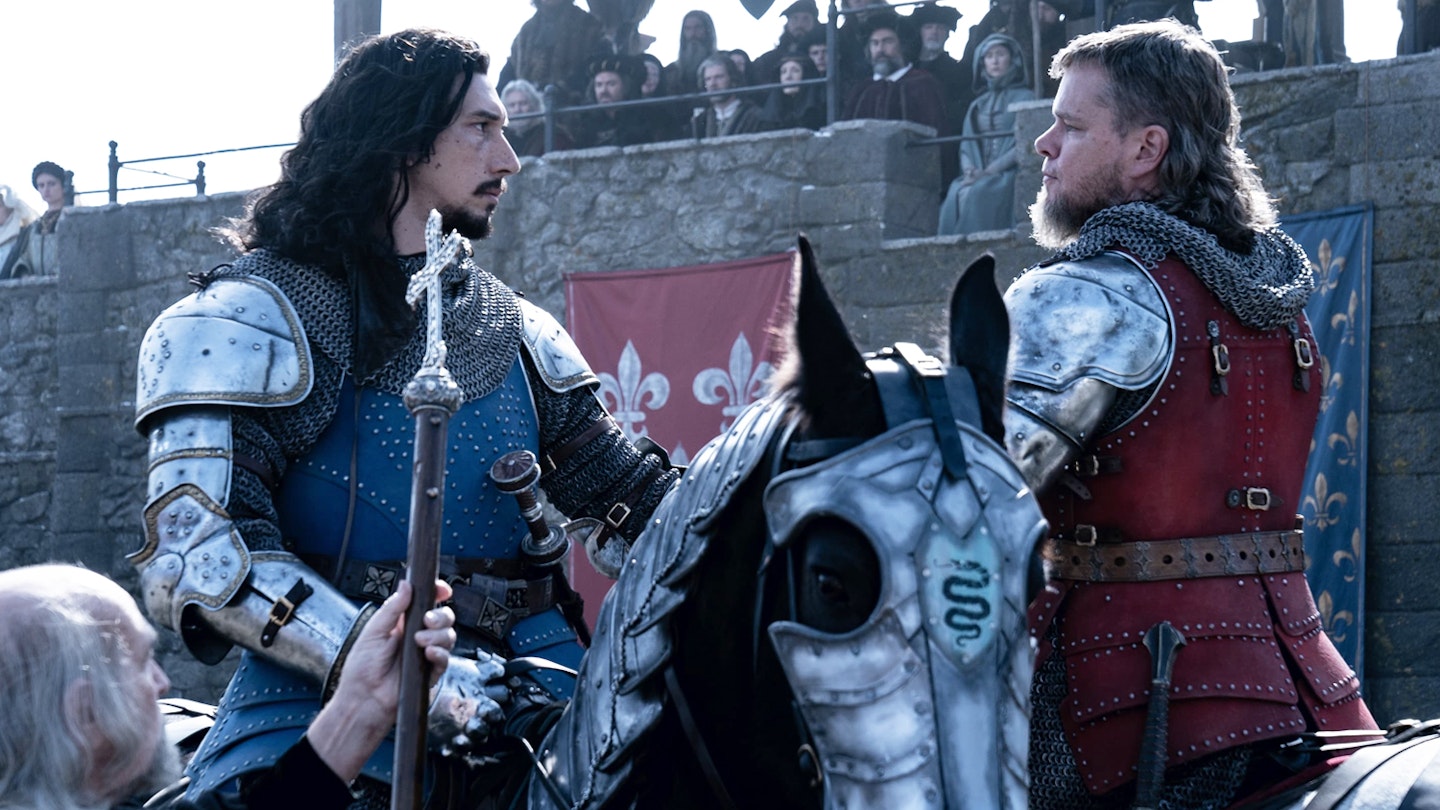
15 Oct 2021
The Last Duel
When it comes to historical drama, Ridley Scott has always been drawn to the bloody spectacle of the battlefield: in Ancient Rome’s dusty arenas ( Gladiator ) or in Crusader-era Jerusalem ( Kingdom Of Heaven ). So to find his sharp eye focusing again on the distant past, and a crowd-drawing conflict, should come as no shock. But what’s surprising about The Last Duel is how little time it spends with its swords drawn.

Instead, we spend much of its two-and-a-half-hour length observing fascinating snippets of medieval French life (running a household, degrading dowry negotiations), zoning in on a rape trial. What this highlights is how abusive and repressive 14th-century Europe was to its women, here embodied in the real historical figure of rape survivor Marguerite de Carrouges ( Jodie Comer ). However, it takes time before we get to the crux of the matter: “Rape is not a crime against a woman” in this society, we learn. “It is a property crime against her husband.” Furthermore, if Marguerite’s husband loses the trial-by-combat he’s demanded to settle the matter, she’ll be deemed a liar in God’s eyes and burned at the stake.
With its Rashomon -inspired three-act structure, it is that husband, portrayed by Matt Damon with an ’80s mullet and an uncertain accent, who gets the first say (written by Damon). This gives the film a slightly awkward start as it presents a bitter man’s litany of grievances at the hands of playboy count Pierre d’Alençon — played with cynical relish by Ben Affleck .
It’s not until the final segment, written by Nicole Holofcener, that the film finds its true and most compelling voice.
The second part, scripted by Affleck, switches POV to d’Alençon’s favourite squire, Jacques Le Gris ( Adam Driver ), a charmer used to getting whatever he wants, who lusts after Marguerite with atrocious results. Despite being his take on events, there is, thankfully, no narrative attempt to excuse his behaviour, or his crime (which we have to watch twice, so be warned).
But it’s not until the final segment, written by Nicole Holofcener , that the film finds its true and most compelling voice in Marguerite, impressively portrayed by Comer as a woman not so much ahead of her time as reasonably defiant against its patriarchal travesties. You might not feel it was worth sitting through Jean and Jacques’ entitled versions to get to this, but they do provide the frustrating context of what Marguerite is up against in daring to speak out.
It’s almost a shame when Scott reverts to form and finally brings out the lances and blades. While the climactic joust is masterfully wrought, it sidelines Comer, and you’re so galled by the self-aggrandising, testosteronal idiocy of the men participating that it’s a tough sequence to be thrilled by, despite the stakes.
Though that is kind of the film’s point. There’s nothing to cheer. We might be more than 600 years past this perverse sense of justice, but when it comes to the treatment of women like Marguerite, The Last Duel suggests, we haven’t come as far as we might think we have.
Related Articles
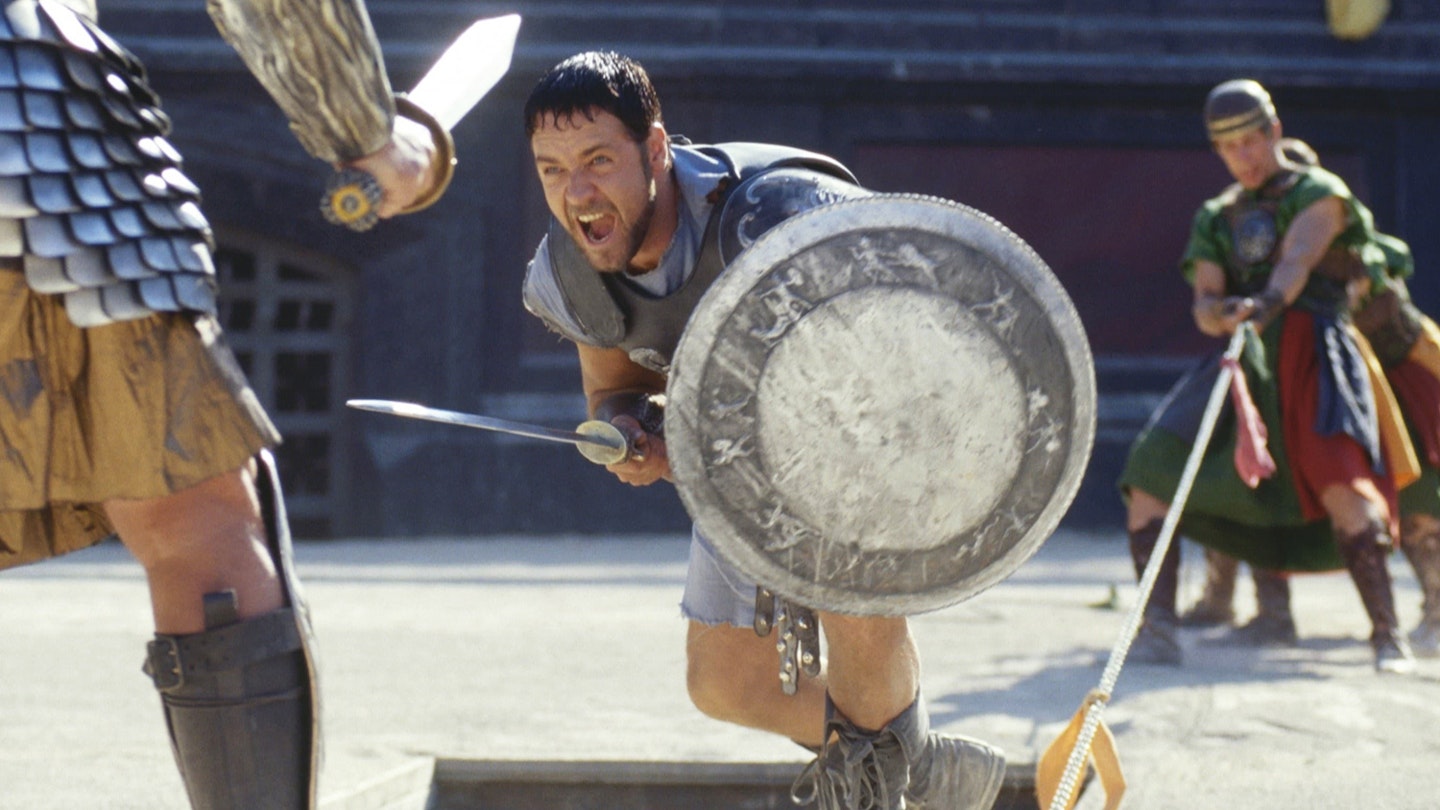
Movies | 05 05 2023
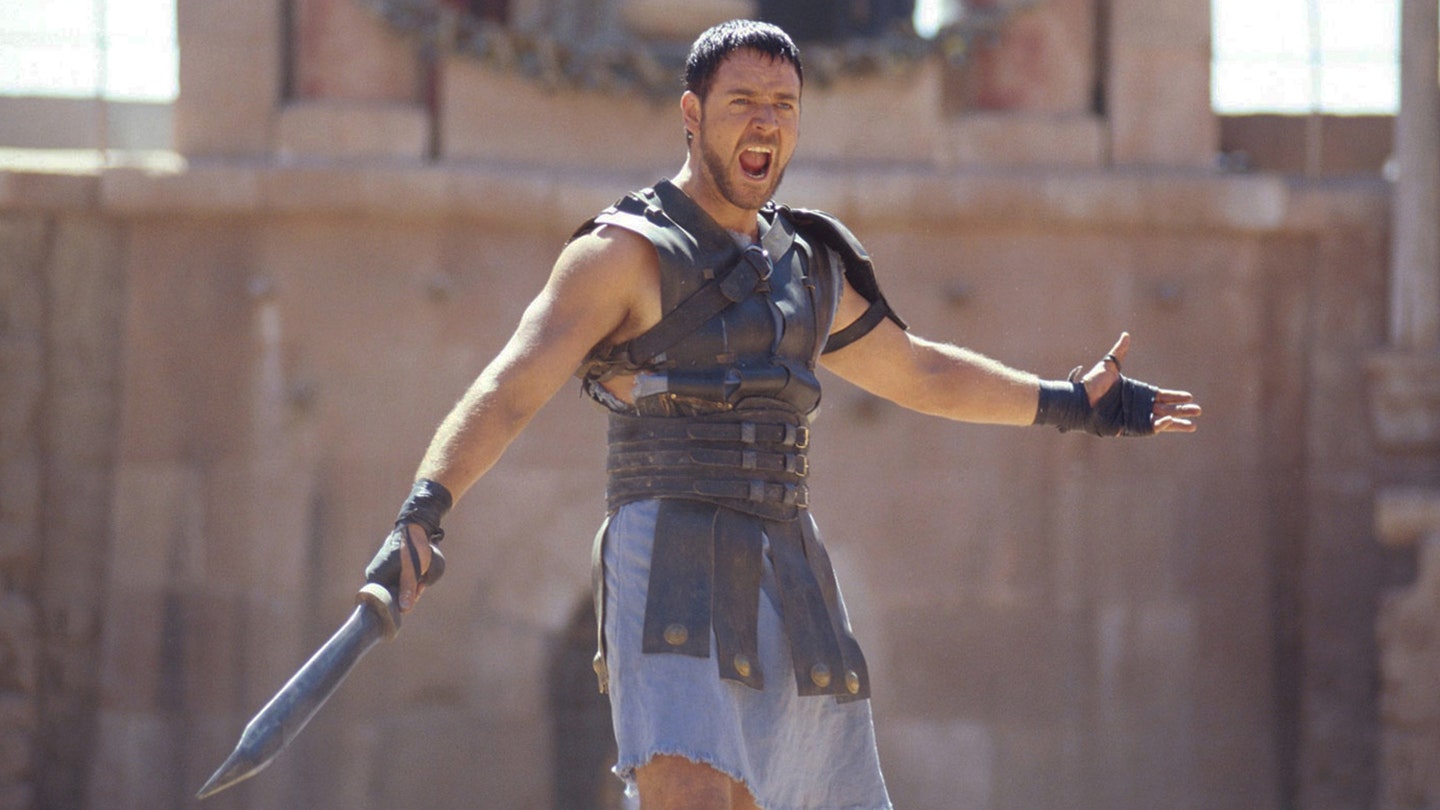
Movies | 29 09 2021
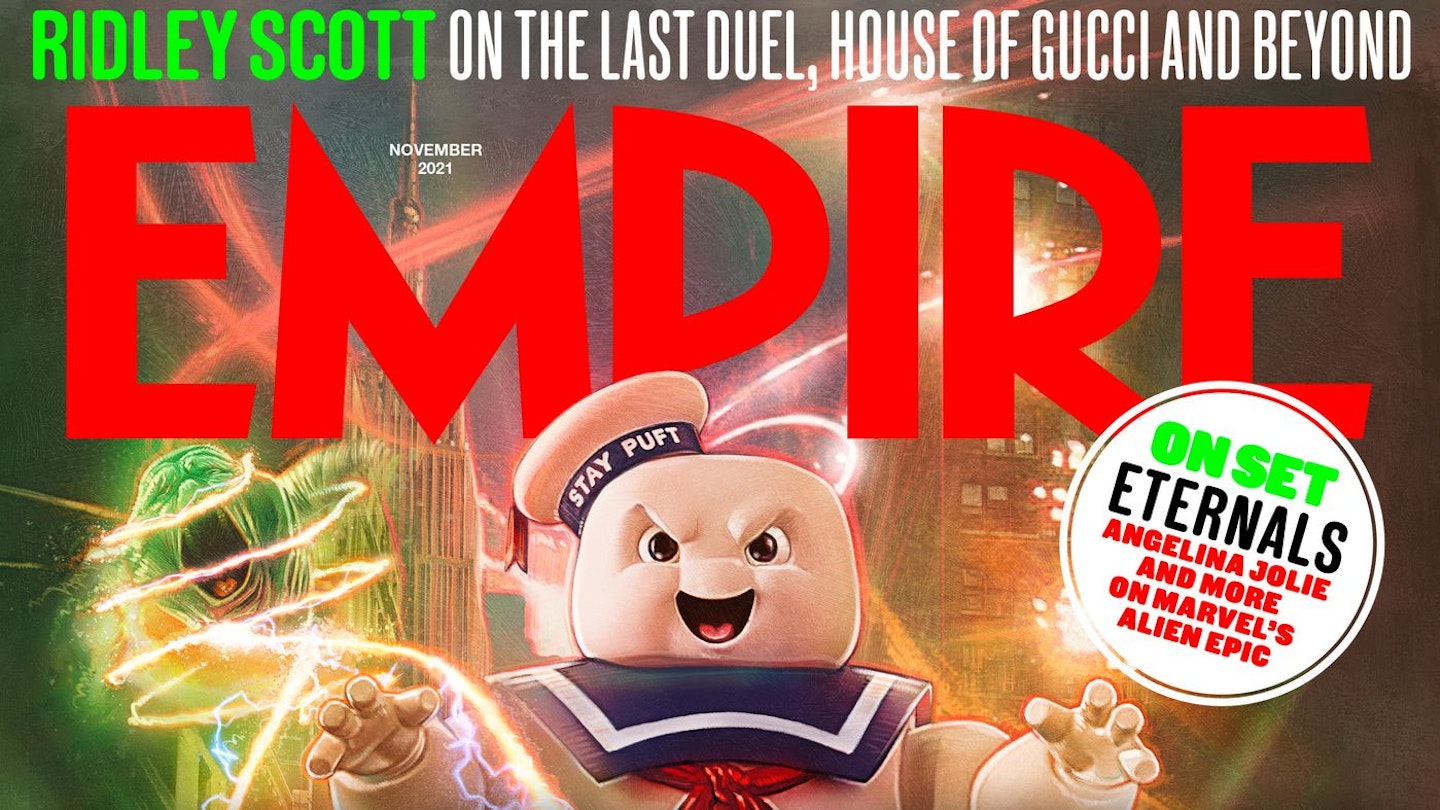
Movies | 28 09 2021
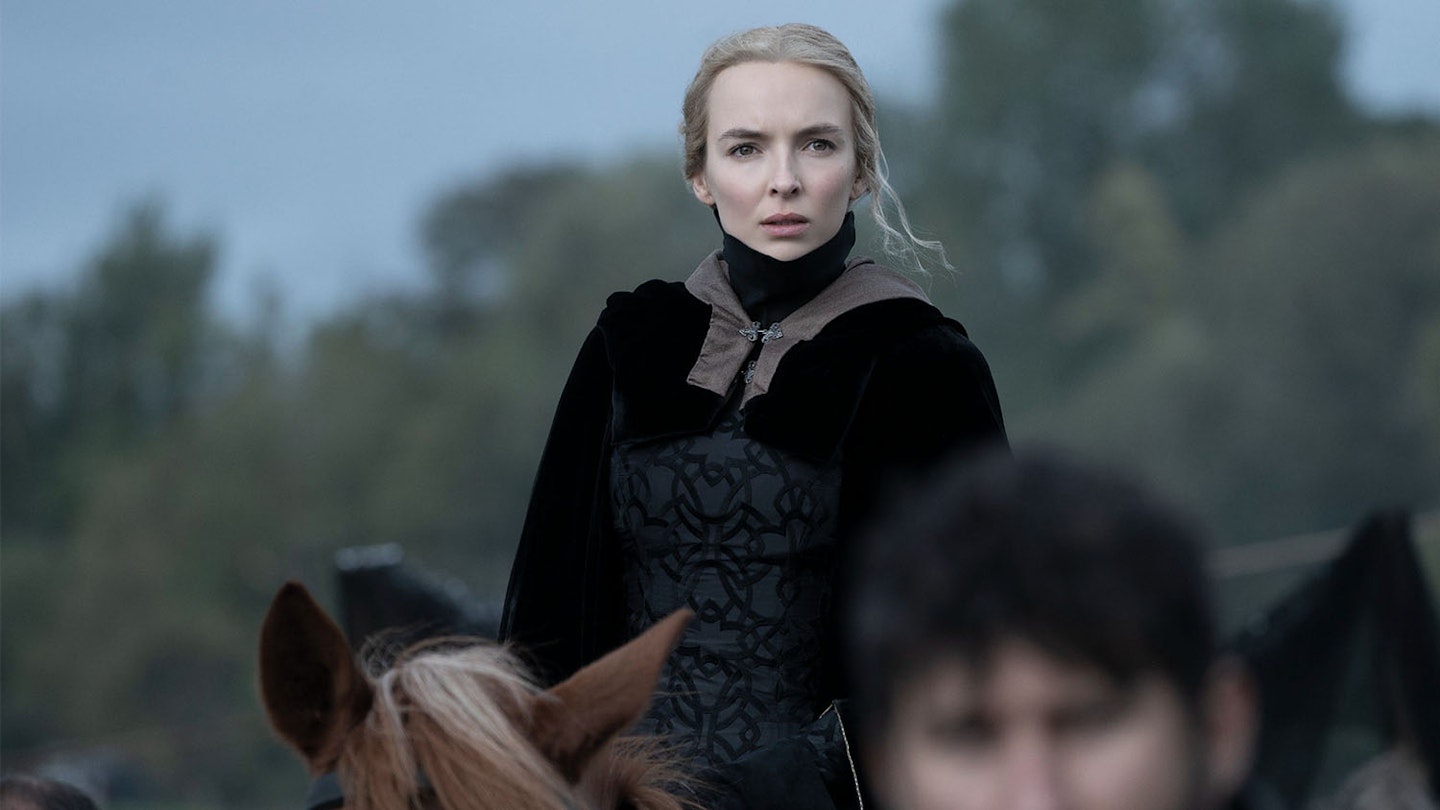
Movies | 27 09 2021

Movies | 12 09 2021
- Entertainment
- The True Story Behind <i>The Last Duel</i>—and History’s Attempt to Erase It
The True Story Behind The Last Duel —and History’s Attempt to Erase It
Warning: This post contains spoilers for The Last Duel.
“Do you swear on your life that what you say is true?” This question, posed to Marguerite de Carrouges ( Jodie Comer ), encapsulates the true history behind The Last Duel , director Ridley Scott’s new film opening in theaters Oct. 15. Based on the 2004 book of the same name by Eric Jager, a professor of English at the University of California, Los Angeles and a specialist in medieval literature, the film uses its titular event—the last judicial duel in French history, held in Paris in December 1386—to delve deeply into the Middle Ages ’ complex politics of gender, female agency, religious morality and sexual ethics .
At the heart of The Last Duel lies a historical mystery, still not definitively solved over 600 years later: was the noblewoman Marguerite de Carrouges raped by the squire Jacques Le Gris? But beyond the mystery itself is the surprising way that Marguerite’s story was transformed and all but erased in the centuries after the events of the film, reinterpreted to serve intellectual agendas with little consideration for the life at the center of the tale. While The Last Duel offers some vindication to Marguerite, all that came next—the story of how her life was recorded and reshaped in the historical record—reveals both how easily marginalized voices can be removed from history even by historical figures we respect and how long it can take to restore those voices to their proper place.
Read more: The 23 Most Anticipated Movies of Fall 2021
A duel as the last resort to settle a life-or-death dispute
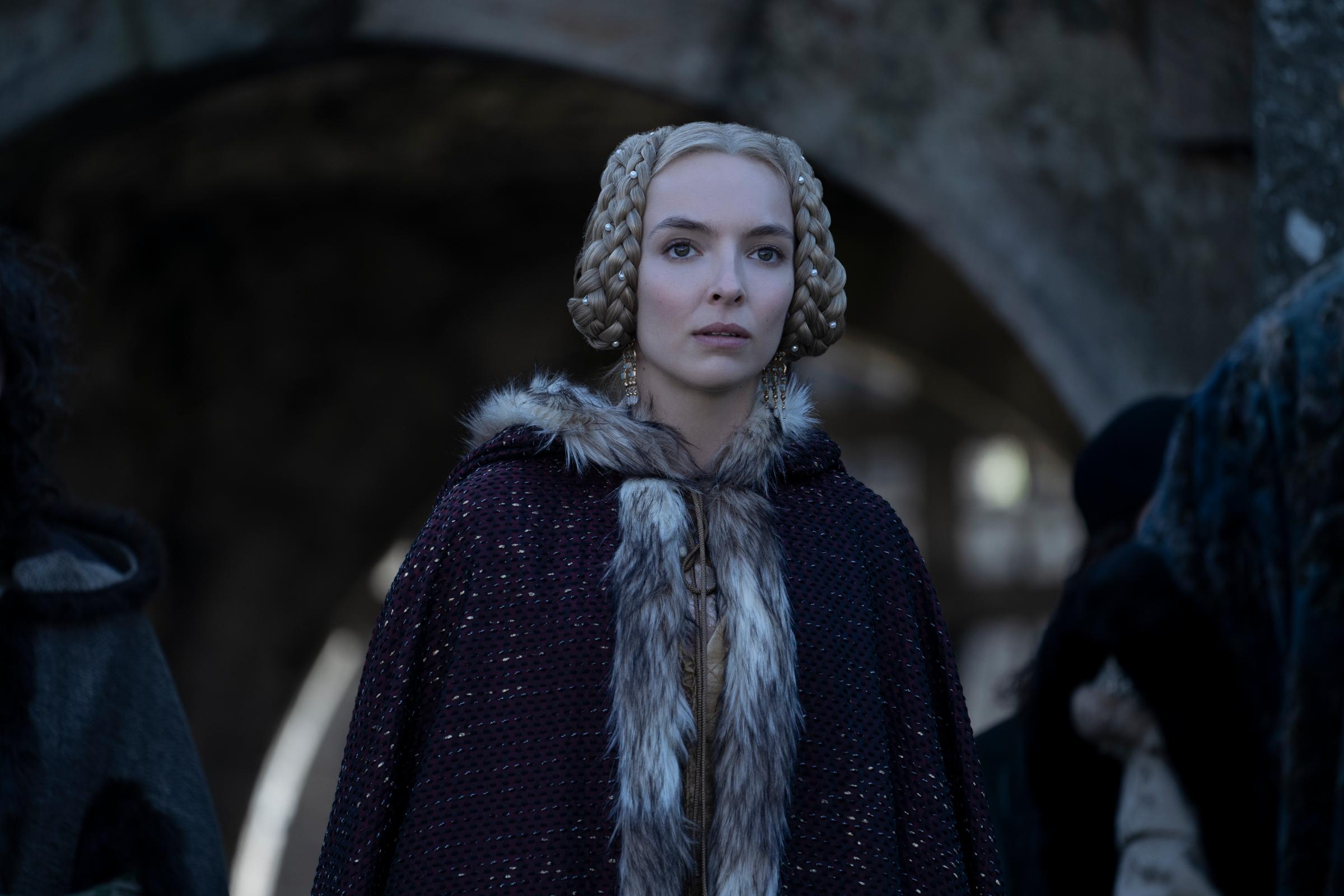
According to Marguerite, Le Gris (played in the film by Adam Driver ) traveled to her family’s chateau in Capomesnil where she was staying on January 18, 1386 and raped her. Marguerite had no one who could confirm her story : her husband Jean de Carrogues (played by Matt Damon ) had set out on a journey to Paris to collect some desperately needed funds and the servants were out for the day with Marguerite’s mother-in-law.
Despite the lack of witnesses, Le Gris certainly had motive and opportunity. In his personal life, Le Gris had a reputation as a philanderer. Le Gris and Jean had once been close friends, but their relationship turned to rivalry over a dispute regarding land Marguerite’s family owned. Shortly before Jean departed for Paris, he and Le Gris confronted one another in the court of Count Pierre d’Alençon (played by Ben Affleck ); Le Gris learned around this time that Jean would be leaving Marguerite alone.
Marguerite’s accusations carried serious ramifications for medieval French society. On the one hand, the punishment for rape, if proven, meant death for the culprit and dishonor for the rapist’s family. On the other, the punishment for false accusations was also death, via burning at the stake.
Attempting to win back the honor of his wife and family, Jean accused Le Gris of rape on Marguerite’s behalf to Pierre d’Alençon but, whether because Le Gris was a favorite of Pierre’s or because Pierre had feuded with Jean on the land dispute—or simply because he didn’t believe Marguerite—the count chalked Marguerite’s testimony up to a dream, a feminine flight of fancy. Enraged, Jean rode to Paris and appealed to King Charles VI, challenging Le Gris to a duel, an uncommon way for nobles to settle capital offenses. After months of futile investigation by the French courts, including Marguerite’s powerful testimony and a counter-witness by Le Gris, the courts had no other choice but to let the duel proceed, allowing God to decide the victor. As Jean Le Coq, Le Gris’ lawyer, wrote in his private diary, “No one really knew the truth of the matter.”
Though the real duel was between Le Gris and Jean, the film portrays the true conflict as Marguerite de Carrouges versus the political mores of her day, as she struggles to convince those around her, from the Church to her family to the French king to the common peasant, that what she says is true. The film splits its focus between Le Gris, Jean, and Marguerite, with Le Gris and Jean’s portions of the story written by Ben Affleck and Matt Damon and Marguerite’s written by Nicole Holofcener. However, despite this split focus, Marguerite clearly emerges as the story’s true protagonist. Jodie Comer’s powerful performance not only does justice to the woman she’s portraying, but also makes her a strong contender for this year’s awards season. If the film missteps, it is because it does not allow Comer, and consequently Marguerite’s narrative, more screen time.
Read more: 15 Unsung Moments From American History That Historians Say You Should Know About
The story gets revised by Enlightenment thinkers
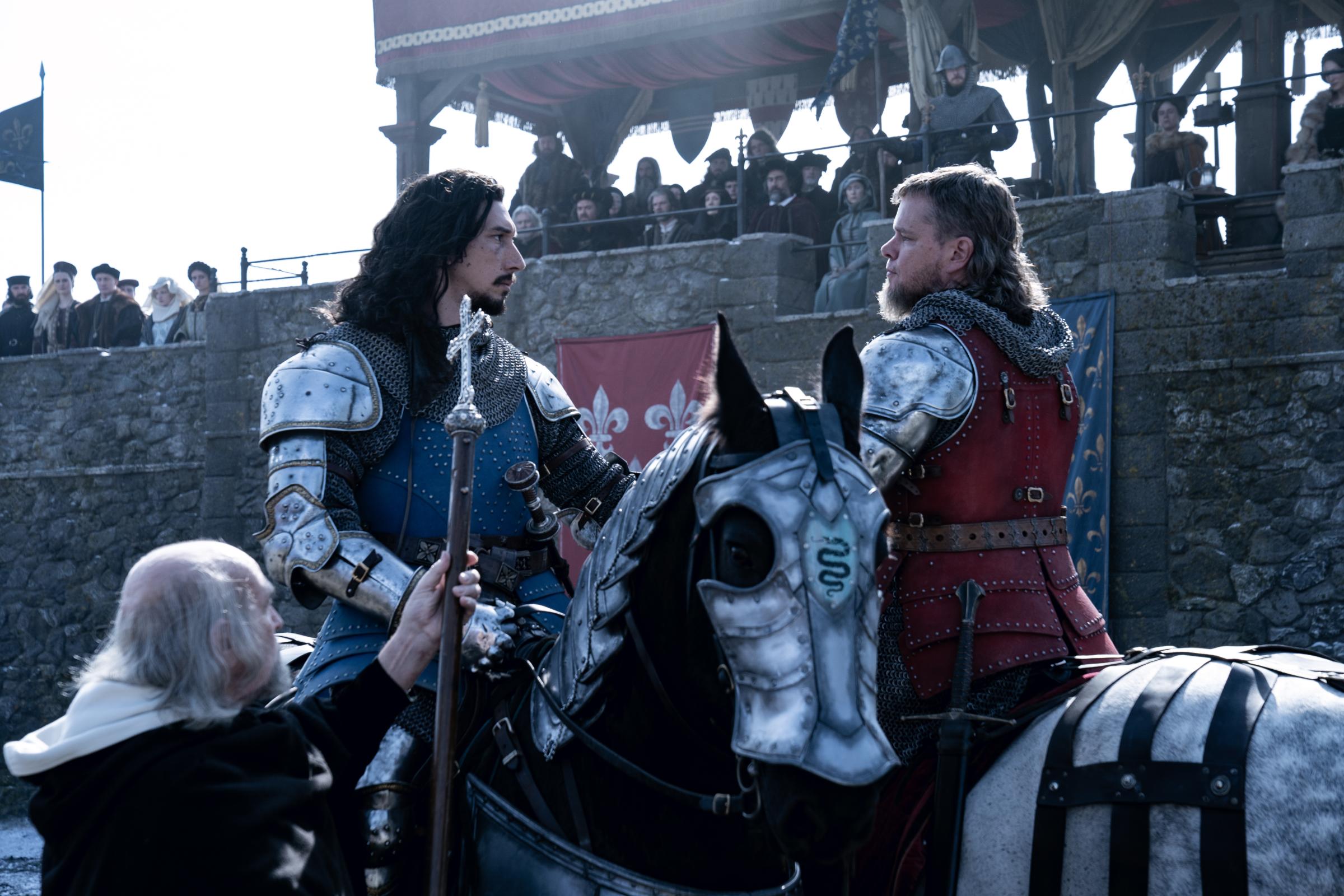
However, Scott’s Duel only depicts half of Marguerite’s story. Although Jean won the duel and succeeded in defending Marguerite’s honor, the event would take on a controversial life of its own in the following centuries. Within a few decades, period chroniclers disagreed about the duel’s details and disputed Le Gris’ guilt. Some wrote, as Jager recounts in Lapham’s Quarterly , that Jean only won because Le Gris “slipped on his opponent’s blood.” Others wrote about a supposed deathbed confession by a felon who, having a last-minute change of heart, admitted that he, not Le Gris, had raped Marguerite.
Enlightenment thinkers in the 18th century adopted this revision of Le Gris’ character to advance their own intellectual agendas. Positioning itself in contrast to the purportedly superstitious Middle Ages (now reimagined as the “Dark Ages”), the Enlightenment prized rationality above all else. Figures like Locke, Rousseau and Voltaire—considered by some modern historians an early feminist—made compelling cases for human rights, gender equality and the natural dignity of all peoples regardless of age, gender or race, which makes the Enlightenment’s widespread acceptance of the medieval narrative that Le Gris was innocent and refusal to consider Marguerite’s perspective all the more surprising and even hypocritical.
One of the Enlightenment’s most scathing critiques of the Middle Ages was of its violence, particularly in capital punishment. For some, Jacques Le Gris became a martyr, a man sentenced to a brutal death by a backwards and superstitious legal system which demonized him. One of the places Le Gris’ vindication emerged was in the Encyclopédie ; this project, spearheaded by Denis Diderot and Jacques d’Alembert, was one of the first modern encyclopedias and a text which articulated many of the Enlightenment’s most formative arguments. In the article on duels , lawyer Antoine-Gaspard Boucher d’Argis described how under “King Charles VI, [people] fought for so little,” offering as an example “the one he ordered in 1386 between Carrouges and Le Gris:”
the latter was accused by Carrouges’ wife of having made an attempt on her honor. Le Gris was killed in the fight and therefore found guilty; nevertheless, he was afterwards found innocent by the culprit of the crime, who declared Le Gris innocent as he laid dying. Before the duel, Le Gris had asked in all the monasteries of Paris that God should pray for him.
D’Argis’ account did not grapple with whether Marguerite’s testimony was valid, but instead chose to emphasize the duel’s injustice towards Le Gris and the futility of Le Gris’ prayers. Voltaire likewise, in his Histoire du Parlement de Paris , critiqued the brutality of the duel, as well as the fact that these duels, “regarded today as an unpardonable crime were always carried out with the sanction of the laws” and the Church. However, Voltaire only acknowledged Marguerite insofar as he claimed “all these fights were fought for women.” Neither D’Argis nor Voltaire mentioned Marguerite by name.
A revisionist history that served a broader agenda
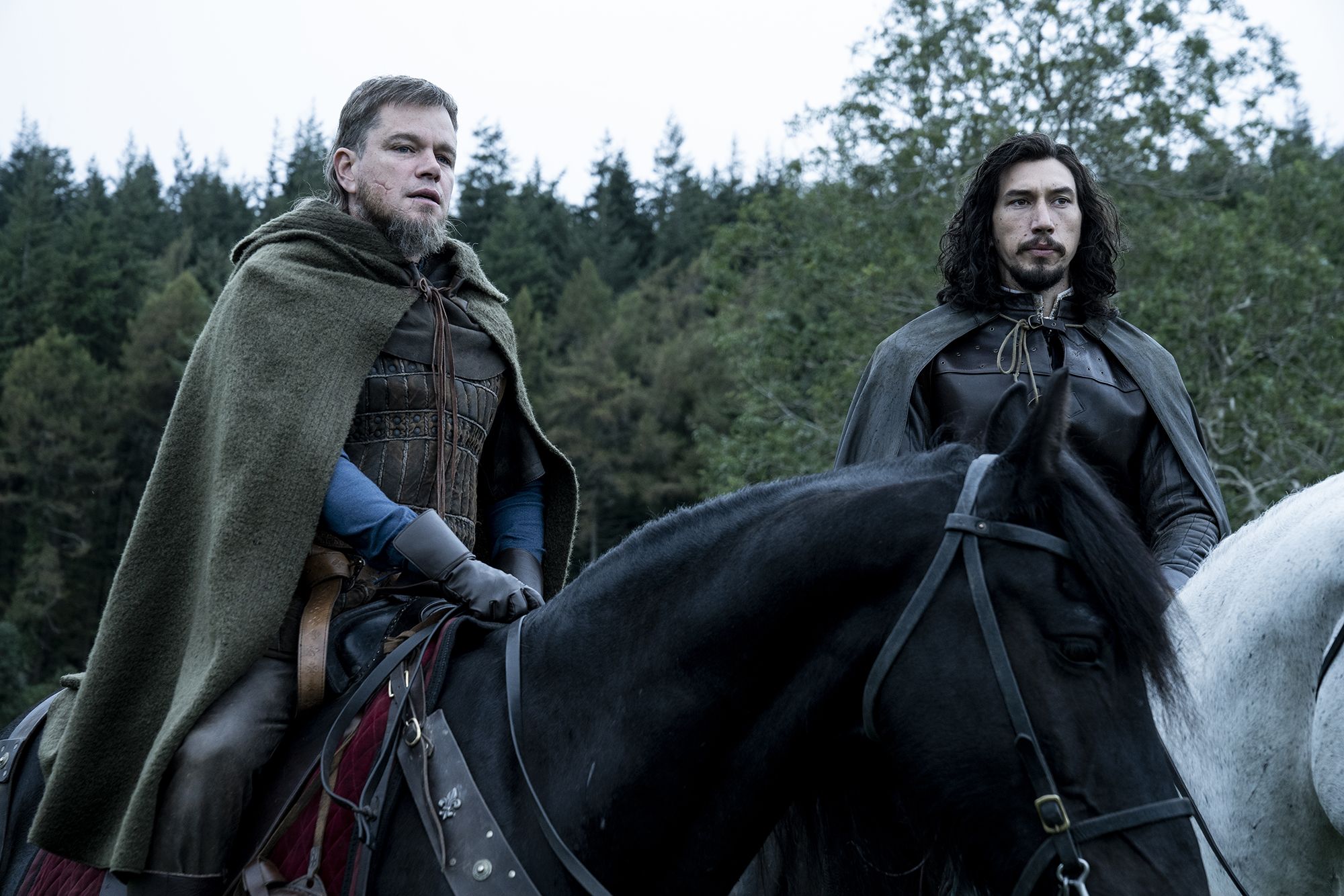
Behind the Enlightenment’s exoneration of Le Gris were its arguments against the use of torture in judicial proceedings. According to Enlightenment scholar and University of Florida assistant professor of history Anton Matytsin, the Enlightenment sought “the end to judicial torture, the abolition of the death penalty, and the institution of proportional and humane punishments that would deter people from committing crimes … this is the main context in which they would have seen a duel: a barbaric way to settle a legal matter.” Cesare Beccaria, a leading Enlightenment thinker, “outlined how judicial torture primarily benefitted not those who were innocent and had nothing to confess but those whose physical constitutions would allow them to withstand pain.”
The Enlightenment’s celebration of Marguerite de Carrouges’ accused rapist challenges our notions of how history develops. While the Enlightenment looks more familiar to modern eyes than the more distant Middle Ages, intellectual and cultural development is not a straight line. While it is obvious now that Marguerite’s testimony deserved to be listened to , was wrongly downplayed in her own time and was ignored by later historians, for the Enlightenment’s intellectuals the story of France’s last duel was one of judicial injustice, not injustice towards women. Despite how much Marguerite de Carrouges’ tale resonates today, we must keep in mind L.P. Hartley’s words: “the past is a foreign country; they do things differently there.”
John-Paul Heil is a Ph.D candidate in early modern history at the University of Chicago and an adjunct professor of history and the liberal arts at Mount St. Mary’s University in Maryland. His scholarly work focuses on the intellectual history of virtue in Renaissance Naples. His work has appeared or is forthcoming in Smithsonian , Los Angeles Review of Books and Comment . The author would like to thank Eric Jager for his correspondence regarding this piece.
More Must-Reads From TIME
- What Student Photojournalists Saw at the Campus Protests
- How Far Trump Would Go
- Why Maternity Care Is Underpaid
- Saving Seconds Is Better Than Hours
- Welcome to the Golden Age of Ryan Gosling
- Scientists Are Finding Out Just How Toxic Your Stuff Is
- The 100 Most Influential People of 2024
- Want Weekly Recs on What to Watch, Read, and More? Sign Up for Worth Your Time
Contact us at [email protected]
Ben Affleck and Matt Damon's 'The Last Duel' is a tough yet important watch that'll likely get Oscar nominations
- "The Last Duel" is a difficult watch, at times, due to its storyline.
- The film, starring Matt Damon and Adam Driver, may be triggering for abuse survivors.
- Warning: There are minor spoilers ahead for "The Last Duel."

Ben Affleck and Matt Damon 's first movie in years is difficult to watch at times. But the period piece also bears a timely feminist message that speaks to the arrogance and seemingly limitless power of men.
Based on a 2004 book , director Ridley Scott's "The Last Duel" will likely garner a few Oscar nods for its raw performances, its storytelling, and an epic fight sequence that rivals the director's "Gladiator" showdown.
Told in three chapters from three points of view during the 14th century, the film is based on a true story of betrayal between former friends Jean Carrouges (Damon) and Jacques Le Gris ( Adam Driver ) as the latter is accused of raping Carrouges' wife, Marguerite (Jodie Comer).
Marguerite speaks up about her assault when it's dangerous for a woman to be anything but silent and subservient to her male guardian out of fear of being ostracized by her community.
With Marguerite's honor in question, Carrouges and Le Gris fight a duel to the death, the last recorded trial by combat of its kind.
Ben Affleck and Matt Damon reunite with this film, but tap Nicole Holofcener to help tell the story accurately
"The Last Duel" isn't just Affleck and Damon's first time on screen together in 20 years, it's also the first script they've written together since 1997's "Good Will Hunting." In this film, the two wisely collaborated with writer-director Nicole Holofcener with each of them writing one of the film's three perspectives — a brilliant story choice.
Damon wrote for his character, Carrouges, Affleck wrote Le Gris' point of view, and Holofcener was tapped to write for Comer to ensure they accurately captured the perspective of a female.
It's worth noting that Affleck was originally supposed to play the role of Le Gris opposite Damon . Affleck later stepped down and took on a smaller role in the film as a count. If you know that going in, it's difficult to watch the film and not wonder how it would've played out since the two have been real-life friends for over 40 years.
As each chapter unfolds, more of the story is slowly revealed as you view it from a different vantage point.
Though you think the film is going to let you decide whose truth to believe, by the time you get to part three, the film emphasizes the words "the truth" on Marguerite's story so you know her version of events is the one that actually matters.
It's a story format that makes you want to go back and rewatch sections of the film over again to compare and contrast the subtle differences between view points, of which there are quite a few. According to the film's production notes, these minor differences were purposeful so that during any point of the film, the viewer believes the current narrator.
In an early scene, Jean goes on about how sick he feels before a trip, but he tells his wife and mother he must push through and go on with it. When the same scene is recounted from Marguerite's truth, Jean isn't shown to be that sick at all.
The two viewpoints of the film's rape scene are a fascinating exercise in how the same moment can be interpreted (and misinterpreted) through different eyes.
From Driver's character's vantage point, the scenario is a bit more romanticized. To him, Marguerite appears to step out of her shoes before sauntering upstairs into her bedroom, appearing inviting to Jacques.
Related stories
When the scene plays again from Marguerite's perspective, it feels more nightmarish. The shoes aren't gracefully removed as much as they slip off her feet as she tries to run up the stairs to escape Jacques' unwanted advances. The sound of his stomps up the stairs are haunting.
Adam Driver is both charming and terrifyingly haunting in "The Last Duel." 20th Century Studios 'The Last Duel' has a rape scene that can be triggering for sexual assault survivors
For those who have a difficult time viewing graphic images of sexual assault, "The Last Duel" may be a triggering watch as a rape is shown twice over from different view points.
The studio "sought advice from several advocacy organizations on the story's portrayal of sexual abuse, survivors and recovery," according to production notes. In addition, an intimacy coordinator, Ita O'Brien ("Sex Education"), was on hand to make sure any portrayal of sexual violence and violence against women "was handled with sensitivity," and it is.
Despite the hard-to-watch scene, Driver does a terrific job in the role, but one that's so convincing that he's particularly terrifying by the film's end. It's a marked contract since initially the audience is charmed by him for the film's first two acts as a beloved member of the community, despite his womanizing ways which foreshadow the darker scene ahead.
Comer's Marguerite has to wait for over an hour to tell her side of the story (fitting, because in 14th century Europe a women would never be allowed to speak before a man). Though her lines are minimal until the last leg of the film, Comer's brilliant at simply acting with her eyes , something the actress mastered in her expressiveness on the spy thriller series, "Killing Eve."
Ben Affleck is a scene-stealer in every appearance of "The Last Duel." Jessica Forde/20th Century Studios Ben Affleck steals every scene he's in, but the movie isn't without issues
Though Damon and Comer offer fine performances, it's Affleck who steals every scene in which he appears as Count Pierre d'Alençon, a cousin of the king.
For as distracting as his character's platinum blonde hair is (I'm still not sure about that style decision), his performance is such a scene-stealer that you almost forget about how ridiculous Affleck looks because he's so convincing as, an often, drunk-with-power count.
"The Last Duel" slightly flounders, however, by making the audience painstakingly wait until the film's final 20-or-so minutes to watch the duel itself, teased at the film's start. Because the film opens at its end as Carrouges and Le Gris prepare for the titular duel before rewinding back to tell its tale, for much of the film's start you're trying to figure out how these once great friends wound up in their current predicament.
It's incredible to watch the nail-bitingly tense scene and a bit graphic, giving off vibes from Scott's former epic "Gladiator." It just takes forever to get there, especially because the film is a lengthy two hours and 20 minutes.
The first 40 minutes are a bit of a slog as you start the story from Jean's perspective. You're not totally sure where the film is going until suddenly Marguerite reveals her assault to Jean. From there, "The Last Duel" never slows down.
The only other massive critique is that it's a bit difficult to believe LeGris is actually in love with Marguerite. It's an infatuation that comes on so quickly and so fiercely that it feels like there's not enough time spent on the build up for it to arrive naturally.
Le Gris claims to be in such a deep profound love with her that it almost feels a bit forced. This isn't any fault of Driver, but rather a fault of not enough time being spent to provide enough context for Le Gris' motivations with Marguerite.
"The Last Duel" is a movie that will stay with you long afterwards for its heavy material. Expect to hear this film's name come Oscar time. In addition to expected Oscar nods for screenplay and nods for Affleck and Driver, the hair and makeup team will likely garner a nod for the many elaborate hairstyles Comer wears throughout the film.
In regards to the film's ending, with Marguerite's honor being fiercely defended, it's easy to wonder how much of the #MeToo movement informed it. It feels as if the story was purposely written in a way to deliver a message of female empowerment.
It makes for a fine narrative with an important message to believe women, but is it one we needed from three men — Affleck, Damon, and Scott? Probably not and that's why Holofcener's contribution is critical.
"The Last Duel" is in theaters Friday.
If you are a survivor of sexual assault, you can call the National Sexual Assault Hotline (1-800-656-4673) or visit its website to receive confidential support.
Watch: How moving the camera more in 'Casino Royale' revolutionized the cinematography of the Bond franchise
- Main content
- International edition
- Australia edition
- Europe edition
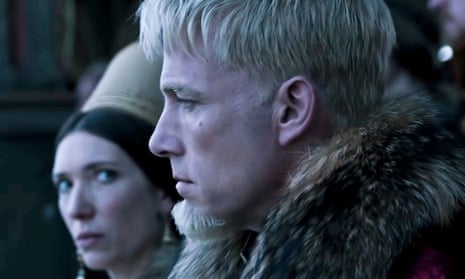
The Last Duel review – Affleck, Damon and Driver deliver damp mullets in the fog
An all-star cast and some showstoppingly horrible hair can’t save Ridley Scott’s medieval epic
D uelling got Ridley Scott into cinema back in 1977 with his much-admired debut The Duellists , but that was a brisk affair of rapiers at dawn. Medieval jousting is likely to be more cumbersome and clanking, and so it is in The Last Duel. Scott is revered as one of cinema’s most versatile mainstreamers but, barring Gladiator , his historical epics have tended not to win much adoration – something that is unlikely to change with this account of a real-life 14th-century case of rape and rivalry.
The feud is between nobles Jean de Carrouges (Matt Damon) and Jacques Le Gris (Adam Driver), who fall out after the latter wins the favour of Count Pierre d’Alençon (Ben Affleck), with De Carrouges losing his destined captaincy and a desired piece of land, part of his promised dowry in his marriage to Marguerite de Thibouville (Jodie Comer). The film begins in 1386, with the men beginning armoured combat in front of King Charles VI, then jumps back to trace the story up to the point when Marguerite tells her husband that Le Gris has raped her.
The plot is told in three parts, each recounting the events from the viewpoint of a particular character – Jean, Jacques and Marguerite – and each scripted by one of three writers in turn. They are Damon, Affleck and, most intriguingly, Nicole Holofcener, best known as the US indie auteur behind crisp female-centred comedies such as Enough Said and Lovely and Amazing . The third chapter, under Holofcener’s charge, is most interesting in opening up Marguerite’s viewpoint and overturning the feudal male perspective of the earlier instalments. Holofcener’s section also provides the wryest line – after a drab bout of functional marital sex, Jean politely enquires: “I trust your ‘little death’ was a memorable and a productive one.”
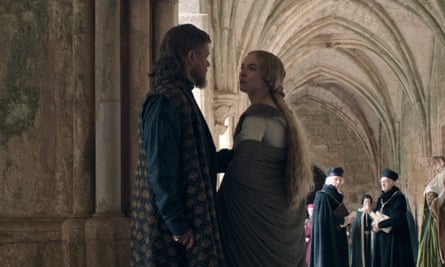
However, by the time the film gets round to showing its hand as an episode of Medieval #MeToo, it has numbed us with so much flash and fustian that the heart of the story has almost been drowned. Marguerite’s story could have made a fascinating, somewhat Shavian drama if only the grandiose spectacle (and the 152-minute running time) had been stripped back. As it is, you quickly tire of the mud, metal and permanently medieval weather: if it’s not snowing, everything’s steeped in mist. And it takes a considerable leap of faith to get over Damon’s mullet and bogbrush beard, less 14th-century knight than 1990s nu-metal bro .
Damon is solidly cantankerous as Jean; Driver does a Byronic, cape-swirling act that suggests he might be using his role as a dry run for a stage Richard III; Comer, though she holds the attention, gives a performance a little too restrained to fully animate a thinly conceived role. Affleck, though, has fun, uttering some of the sillier lines (“Come in, take your pants off”) as a platinum-haired lord who runs his chateau like the Playboy Mansion. Otherwise, my liege, neither memorable nor productive.
- Venice film festival 2021
- Venice film festival
- Ridley Scott
- Adam Driver
- Ben Affleck
Comments (…)
Most viewed.
THE MOVIE CULTURE
The Last Duel Movie Review & Summary: A Historic Tale of Men for the Modern-Day
The Last Duel is a 2021 epic historical drama film directed by Ridley Scott starring Matt Damon, Adam Driver and Jodie Comer.
The Last Duel Movie Cast
- Matt Damon as Sir Jean de Carrouges
- Adam Driver as Jacques Le Gris
- Jodie Comer as Marguerite de Carrouges
- Ben Affleck as Count Pierre d’Alençon
The Last Duel Movie Plot
Set in 14 th century France, ‘The Last Duel’ follows the story of a knight, Jean de Carrouges(Matt Damon), who challenges his estranged friend squire Jacques Le Gris(Adam Driver) to a judicial duel after his wife, Marguerite(Jodie Comer), accuses Jacques of raping her.
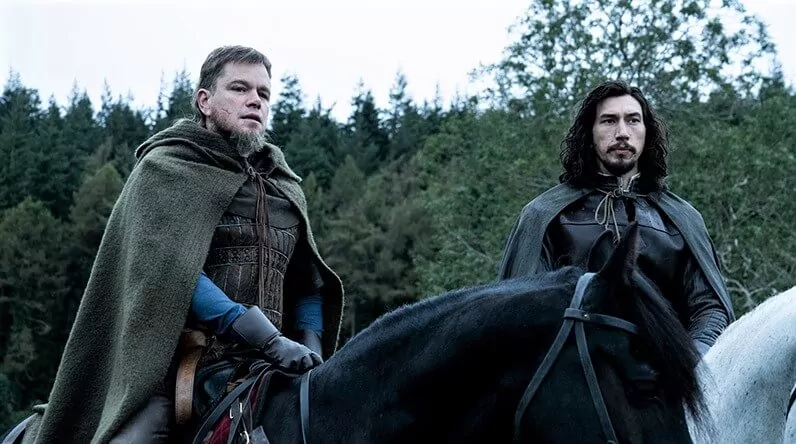
The Last Duel Movie Review
Ridley Scott returning to epic historical dramas must sound like good news for people who remember Maximus avenging his family’s murder in sheer style and machismo. Seems Maximus was on point when he said, “What we do in life, echoes in eternity”. It’s fair to doubt his ability to replicate the success of a Best Picture Academy Award winner, but anything half as good as the 2000 epic drama film must be worthy enough to pass the litmus test. If one was to point out the similarities between ‘Gladiator (2000)’ and ‘The Last Duel (2021)’, at the outset, both are movies that portray men fighting for strength and honour.
Though, the kind of strength and honour one would witness in ‘The Last Duel’ could prove to be the differential. The film’s run-time is divided into three chapters, each portraying the three different versions from the perspective of the three main characters. The wronged woman’s version coming in the last is not merely a creative choice or a coincidence. The chronology perfectly reflects the importance the character gets. For instance, Jean is not a brave husband who dares to risk his life to avenge the wrong done towards his wife. Instead, he is a man who is ready to risk it all because his pride has been violated as another man has dared to touch what belongs to him alone- his property, his wife.
Jean de Carrouges is a brave knight who’s always ready to fight for his king to protect his family’s name in which he takes immense pride. Although, this bravery falls short in impressing Count Pierre d’Alençon (Ben Affleck) who finds his confidant in Jean’s friend, squire Jacques Le Gris. Finding himself out of favour from the count, soon a tussle of ego and insecurity ensues between the two friends. Meanwhile, Jean marries Marguerite, the daughter of a former betrayer of the King. As Jacques earns more power and wealth by virtue of his proximity with the count, Jean becomes increasingly frustrated by the treatment he receives.
Things come to the breaking point when after returning from a long journey, Jean finds his wife accusing Jacques of violating her without her consent. He manages to arrange a hearing in front of the King, during which he demands a duel with the man who wronged him and his wife. The law suggests the duel’s victor, by the grace of God, will be the one who is just and right. The movie opens up with the two competitors preparing for the duel and then we see the said events taking place from the perspective of the three parties. Each version differs in the way it places the “truth” in front of the audience. Yes, it’s Rashomon all over again, but this time in the land of soufflé.
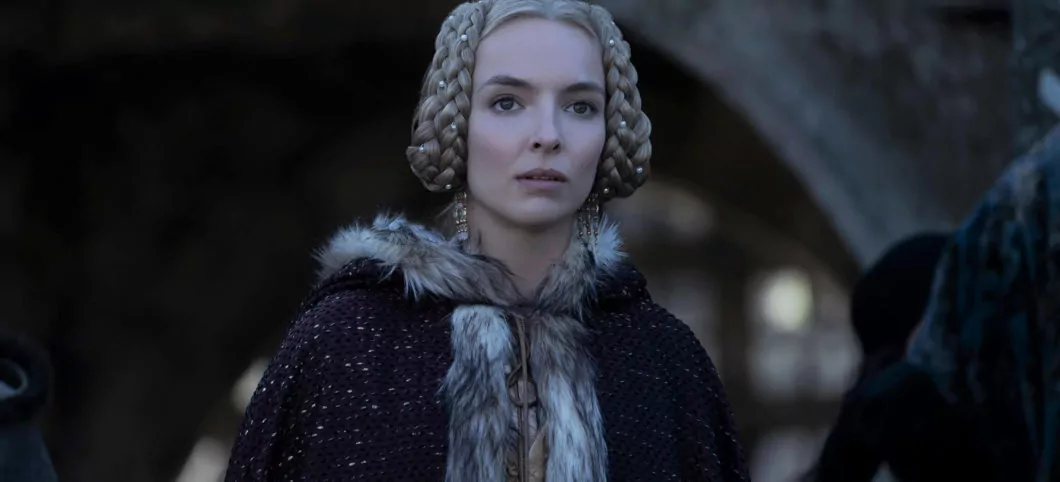
The Last Duel’s Portrayal of Sexual Violation and the Meaning of Consent
The truth, although ambiguous to the characters in the movie until the very end, reveals itself very clearly pretty early in the movie. Amidst the varied repetitions of the same story, what is put forth in ‘The Last Duel’ is a gripping portrayal of the subjugation of women and the treatments victims of sexual violation receive when voicing their truth, often at the risk of putting their own character at one end of scrutiny. In its most honest moments, the movie does not hesitate in pointing out that the definition of a woman’s consent is often set in context with the play of power, beliefs and ego of men who set the rules of the world. Pride, ego and beliefs of the people around, all supersede the victim’s plight. In a world that has witnessed the #MeToo movement, Marguerite’s voice might definitely resonate more than it did in 14 th century France.
The movie successfully drives across the point it tries to make. However, the impact is dampened by the absurdness that comes into play. On most occasions, it becomes rather easy to contextualize the situation in a modern-day setting. But at the same time, it’s the medieval indifference, brutality and callousness which alienates the portrayal into something probable back then, given the tide and time. At the risk of almost wandering into irrelevance, the movie manages to tread a fine line to stay relevant to the 21 st century. The support is provided by the performances of the cast in not making it look like a merely isolated event in distant history. The attention to detail given to the three different variations of the same event is impressive and it comes out noticeably, thanks to the performance of the cast.
The film is not wired with unexpected plot twists and where the film is heading is clear from the get-go. The film is not confused with what it wants to achieve; in the end, it leaves the viewer with answers to most questions that may arise during its course. It’s indeed possible one may feel the way the women in the film feel at moments and be left wondering. The movie loses its purpose where it becomes reasonable for the viewer to fit the injustice being meted out as a result of the historical juncture in which the events are taking place, instead of the social conditions that have prevailed ever since. It’s this waywardness in the screenplay which diminishes some of the intensity. Even then, the movie never feels apologetic about what it’s trying to prove. However, the makers should be apologetic about not giving Jodie Comer a meatier role. Marguerite, as a character, remained less of an interesting one to watch as compared to the primary male characters.
The Movie Culture Synopsis
Ridley Scott’s ‘The Last Duel’ is more than just an epic historical drama film based on another book that covers yet another event from the long-drawn manuscript of history. It has the tropes of bloody violence, war and the usual paranoia that haunt men in historical dramas, along with the massive scale (Come on, it’s a Ridley Scott film!).
Ego, power and certain historical madness make it to the screen. But importantly, it’s the relevant critique the film provides. The film is not flawless, but it has its appeal and a cast one could bet their money on any day.
You may have missed

- TMC Exclusives
- TMC Originals
Yuta Okkotsu’s Domain Expansion Explained: Authentic Mutual Love – Jujutsu Kaisen Manga
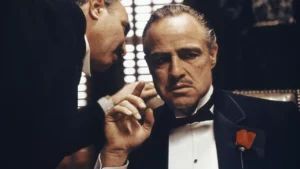
Top 101 Movies of All Time: As per IMDb ratings

Why we all love the Kung Fu Panda Franchise

- Uncategorized
Leave the World Behind: Ending Explained

By providing your information, you agree to our Terms of Use and our Privacy Policy . We use vendors that may also process your information to help provide our services. This site is protected by reCAPTCHA Enterprise and the Google Privacy Policy and Terms of Service apply.
‘The Last Stop in Yuma County’ Review: A Diner Robbery Spirals out of Control in a Finely-Tuned First Feature
Christian blauvelt.
- Share on Facebook
- Share to Flipboard
- Share on LinkedIn
- Show more sharing options
- Submit to Reddit
- Post to Tumblr
- Print This Page
- Share on WhatsApp
A roadside diner. Not just a place to see peeling upholstery and rodent traps, and indulge in the occasional sugary slice, but a genuine icon of Americana from Edward Hopper to “Frasier.” A diner is the great, anxiety-drenched stage where most of first-time feature director Francis Galluppi ‘s “ The Last Stop in Yuma County ” takes place, and, though this thriller is packed with memorable characters, the diner itself might be its greatest.
They quickly take over the diner in question, holding hostage the only people present — Donahue’s waitress, named Charlotte, and a traveling knife salesman played by Jim Cummings , unnamed. Well, the only people there at that moment. Travis and Beau needed a place to hide out while waiting for the gas truck to arrive at the fill ‘er up station next door, so they can fill up and head out onto the 100-mile stretch of road that leads straight into the desert. The gas truck doesn’t arrive, though. The opening credits show why. And with a long wait for it to arrive, other people start pouring into the diner as well, also hoping to get some gas and unaware of the hostage situation playing out right in front of them.
This is one promising debut, but the reality is that it’s a far greater feat of directing than screenwriting, for which Galluppi has the sole credit as well. He’s great at telegraphing small details about his characters through close-up reaction shots — and his actors are more than up to the challenge of conveying a ton, without significant explanatory dialogue. Donahue, a scream queen who came to horror fans’ attention for Ti West’s “The House of the Devil,” is particularly adept at conveying so much of what she needs to through a flick of her eyes and a shift in her posture. But everyone’s dialogue feels a little too on-the-nose at times. Does Sybill really need to flat-out say that The Knife Salesman looks like the “cross-dresser from ‘Psycho’?” Cummings’ Anthony Perkins vibes here are already very palpable to anyone with even a rudimentary knowledge of film . And the scenario itself is ultimately about moving them around like pieces on a chess board — about putting them into just the right positions for the most explosive effect. Because you know something major is going to go down.
Galluppi is clearly adept with actors, and he knows how to make the most of a simple setup — the way he slows down and speeds up the experience of time is particularly skillful — but “The Last Stop in Yuma County” has many of the hallmarks of a first film. It’s a showcase for its director’s skillset and chosen obsessions but with many notions feeling more like a tease than the full elaboration you might expect from a more experienced filmmaker. He’s directed music videos and his similarly dusty short-film thriller “High Desert Hell” won acclaim in 2019, but he’s got a way to go as a filmmaker.
The ambition is there, though, and Galluppi’s ability to maximize the potential of a single location and an ensemble within it should lend itself well to the Untitled “Evil Dead” film he’s attached to as his next project. After all, a roadside diner is usually just a place to stop for a bit when passing through. Maybe “The Last Stop in Yuma County” is just a pitstop on the way to an even more exciting cinematic destination to come.
Well Go will release “The Last Stop in Yuma County” in theaters and on VOD on Friday, May 10.
Most Popular
You may also like.


COMMENTS
Despite this, THE LAST DUEL has some scenes of positive Christian faith, a clear sense that Jacques and Count Pierre are evil, and a small scene featuring a strong, ethical Catholic priest. A bigger issue with THE LAST DUEL, perhaps, is that the movie contains extreme sexual content, brief excessive sexual nudity and some graphic bloody violence.
According to Germanic law, whichever combatant was still alive at the end of the duel would be declared the winner, as a sign of God's will. This was done to settle accusations in the absence of witnesses or a confession. Film based on the book The Last Duel: A True Story of Trial by Combat in Medieval France, Eric Jager (2004)
Movie Review: 'The Last Duel'. NEW YORK (CNS) — There are many knights but not much shining armor in the grim historical drama "The Last Duel" (20th Century). With a real-life conflict in 14th-century France serving as a portal through which director Ridley Scott, along with screenwriters Matt Damon, Ben Affleck and Nicole Holofcener ...
Scott's "The Last Duel" may not be perfect but it never exhibits such inertia. This medieval intrigue comes courtesy of an unusual combination of talents: its screenplay, which is indeed based on true Medieval Events, is by Matt Damon and Ben Affleck (collaborating as writers, or at least as credited writers, for the first time since ...
This film is a long slow burn. It is a strong film with strong character arcs and great performances from Damon, Driver and Comer. The center piece of the film of course is misogyny and patriarchy, which is no short supply. The differences at times are subtle but important and the self-importance in this film abounds.
The Last Duel is not meant to be a mere period piece. Produced by Matt Damon and Ben Affleck (who play Jean and Pierre, respectively) and directed by acclaimed director Ridley Scott, the film is a #MeToo movie set in the Middle Ages—one that speaks poignantly and pointedly to the all-too-often-ignored acts perpetrated by powerful men.
85% 292 Reviews Tomatometer 81% 1,000+ Verified Ratings Audience Score The Last Duel is a cinematic and thought-provoking drama set in the midst of the Hundred Years War that explores the ...
Full Review | Original Score: 8/10 | Apr 25, 2022. Jennifer Heaton Alternative Lens. The Last Duels long runtime and grim subject matter may make it a difficult watch, but ... this is a brutal and ...
Leah Greenblatt is the critic at large at Entertainment Weekly, covering movies, music, books, and theater.She is a member of the New York Film Critics Circle, and has been writing for EW since 2004.
NPR's Steve Inskeep talks to film critic Kenneth Turan about The Last Duel, directed by Ridley Scott. The story takes place in 14th century France, based on true events about a trial by combat.
Beneath the chain mail and bad hair, 'The Last Duel' is a movie about mansplaining and toxic masculinity By Ann Hornaday October 14, 2021 at 12:01 p.m. EDT
Jodie Comer comes up against odious men played by Matt Damon, Ben Affleck and Adam Driver in a reverse rape-revenge parable set in 14th-century France
The Last Duel is a sprawling, often ungainly movie — a talky, three-part Rashomon -style drama that mixes past and present-day politics — but there's a bracing intelligence to its messiness ...
The movie opens with the duel about to get underway on a December morning in Paris in 1386 — a prologue that finds Scott in fine action-movie fettle, with enough clomping of hooves and clashing ...
The story's action is visceral and relentless; the atmosphere gray and thick with intrigue. Scott likes to throw a lot on the screen — the movie churns with roaring men, galloping horses ...
The film begins with the so-called truth of what led to a real-life 1386 duel to the death, first according to French knight Jean de Carrouges (Damon), then that of squire Jacque Le Gris (Driver ...
1386.The background to France's last-ever trial by combat is seen from three perspectives: Norman knight Jean de Carrouges (Matt Damon), who accuses his former friend Le Gris (Adam Driver) of ...
By John-Paul Heil. October 15, 2021 7:00 AM EDT. Warning: This post contains spoilers for The Last Duel. "Do you swear on your life that what you say is true?". This question, posed to ...
Now free from Sir Jean's turgid POV, "The Last Duel" assumes the new lead's confidence and joie de vivre as the three movie stars fall into their respective comfort zones. Damon ...
Oct 16, 2021, 6:22 AM PDT. Matt Damon and Adam Driver square off in "The Last Duel." Patrick Redmond/20th Century Studios. "The Last Duel" is a difficult watch, at times, due to its storyline. The ...
Fri 10 Sep 2021 15.30 EDT Last modified on Fri 10 Sep 2021 17.44 EDT Share D uelling got Ridley Scott into cinema back in 1977 with his much-admired debut The Duellists , but that was a brisk ...
The Last Duel is a 2021 epic historical action drama film directed by Ridley Scott from a screenplay by Nicole Holofcener, Ben Affleck, and Matt Damon, based on the 2004 book The Last Duel: A True Story of Crime, Scandal, and Trial by Combat in Medieval France by Eric Jager.Set in medieval France, the film stars Damon as Jean de Carrouges, a knight who challenges his former friend, squire ...
The Last Duel Movie Review. Ridley Scott returning to epic historical dramas must sound like good news for people who remember Maximus avenging his family's murder in sheer style and machismo. Seems Maximus was on point when he said, "What we do in life, echoes in eternity". It's fair to doubt his ability to replicate the success of a ...
'The Last Stop in Yuma County' review: A sharp diner thriller from first-time director Francis Galluppi, starring Jim Cummings, Jocelin Donahue.